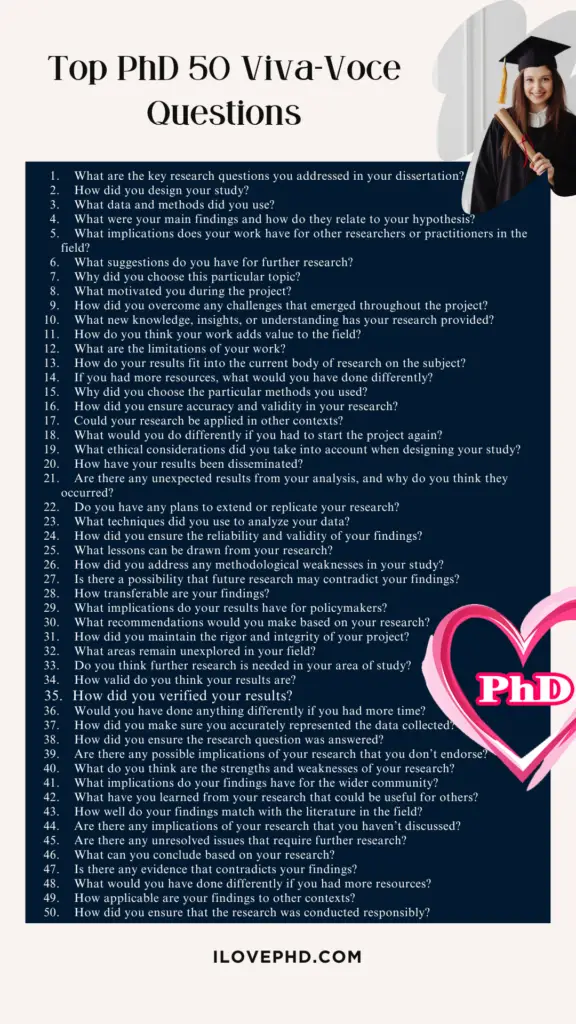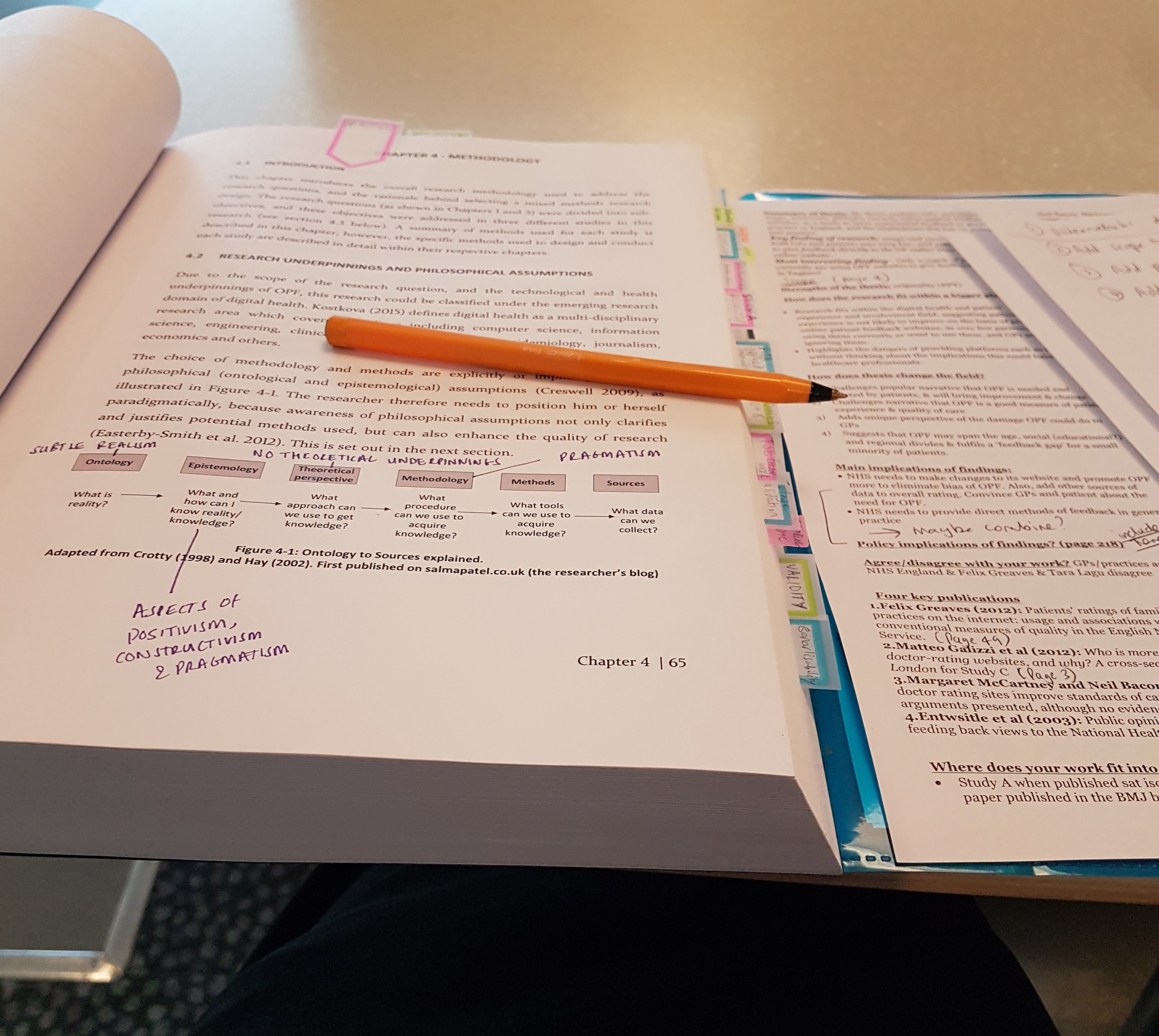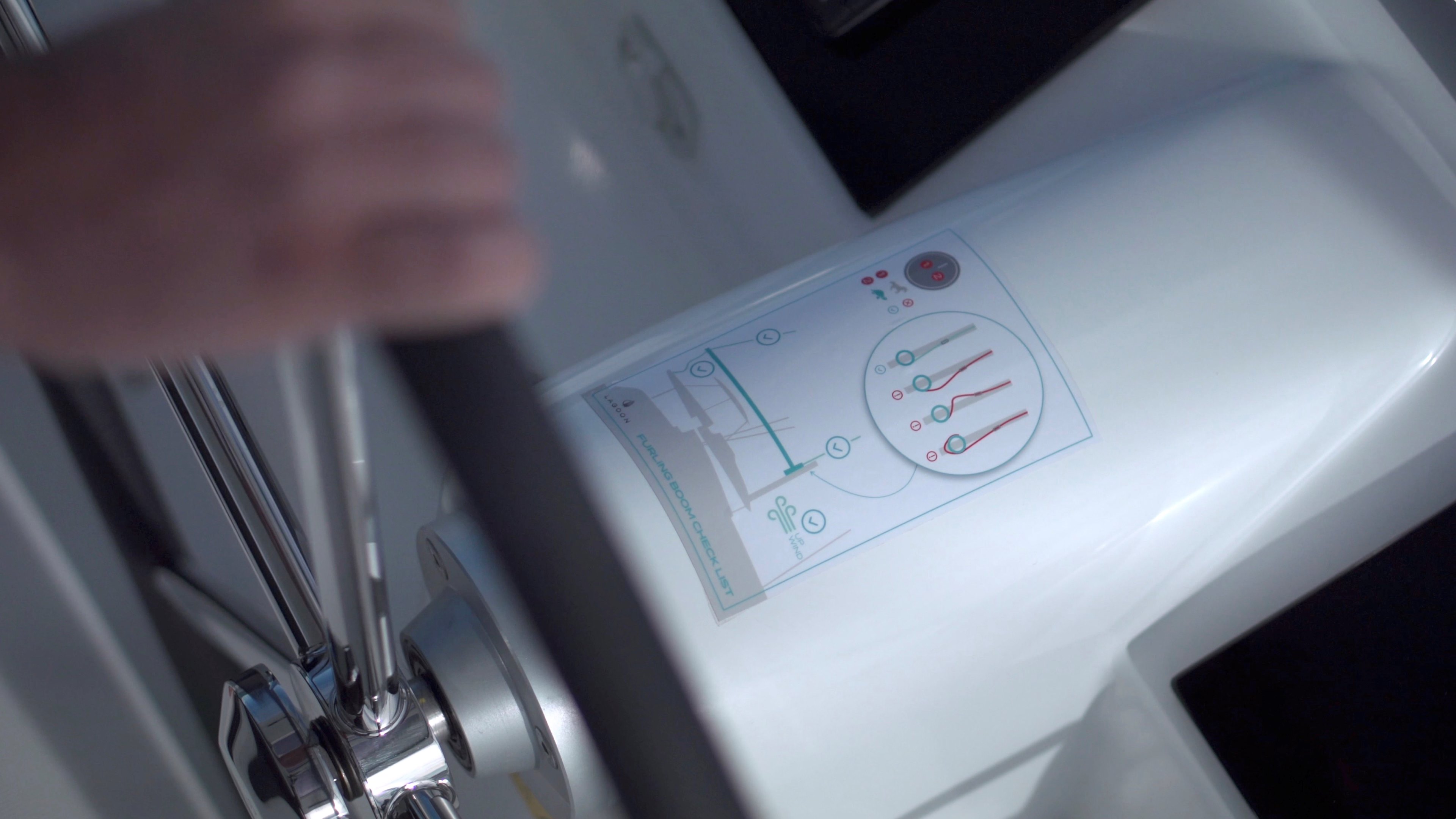

Lagoon Seventy7 Catamaran

Dimensions & Specifications
Brochure, Specifications, & Layouts
- Overall length : 23.28 m
- Waterline length : 22.60 m
- Maximum beam : 11.00 m
- Draft : 1.90 m
- Displacement : 57 tons
- Fresh water capacity : 1500 litres
- Fuel capacity : 2800 litres
- Standard engine power : 2 x 180 HP
- Naval architects : VPLP
- Interior design : Nauta Design
Catamaran Guru Walk-Through & Seatrial Video
The new lagoon seventy7: innovative features.
- The SEVENTY7 boasts a forward hull door opening out to a private balcony
- a large stern platform serving as a sunbathing area,
- a tender dock,
- or even a recreation area and offers a highly sophisticated on-board operations monitoring system.
- The main distinguishing feature of the luxurious SEVENTY7 is the owners suite
Lagoon Seventy7 Unique Luxurious Owner’s Suite

- Direct private access from the saloon
- Direct access to the cockpit and foredeck where you have an unobstructed panoramic view – perfect for navigation and watching sunsets
- Optional hydraulic platform creates a private beach platform on the outboard side of the hull
Lagoon 77 Square Footage

Birth Of The Lagoon Seventy7
*Pictures courtesy Lagoon Catamarans

For more than 30 years, we have been a part of the catamaran community and created Catamaran Guru™ to encourage and educate all the aspiring sailing out there. We understand the dream of traveling the world by catamaran and created a one-stop-shop to make that dream a reality for you.

- Stephen & Estelle
- Testimonials
Get Started
- Yacht Sales
- Used Yachts
- Charter Management
- Boat as Business Programs
- Seminars & Events
Please use a modern browser to view this website. Some elements might not work as expected when using Internet Explorer.
- Landing Page
- Luxury Yacht Vacation Types
- Corporate Yacht Charter
- Tailor Made Vacations
- Luxury Exploration Vacations
- View All 3700
- Motor Yachts
- Sailing Yachts
- Classic Yachts
- Catamaran Yachts
- Filter By Destination
- More Filters
- Latest Reviews
- Charter Special Offers
- Destination Guides
- Inspiration & Features
- Mediterranean Charter Yachts
- France Charter Yachts
- Italy Charter Yachts
- Croatia Charter Yachts
- Greece Charter Yachts
- Turkey Charter Yachts
- Bahamas Charter Yachts
- Caribbean Charter Yachts
- Australia Charter Yachts
- Thailand Charter Yachts
- Dubai Charter Yachts
- Destination News
- New To Fleet
- Charter Fleet Updates
- Special Offers
- Industry News
- Yacht Shows
- Corporate Charter
- Finding a Yacht Broker
- Charter Preferences
- Questions & Answers
- Add my yacht
- Yacht Charter Fleet
- Yacht Builders
- Lagoon Yacht Charter

Seventy 7 Charter
- Other Lagoon Ranges:
Try Before You Buy
Contemplating a purchase? Why not charter the Seventy 7 for a 'try before you buy' experience?
8 yachts found
- GBP £
- Expedition Yachts
- Open Yachts
- Sport Fishing
- Gulet Yachts
- Summer 2024
- Winter 2024/2025
- Summer 2025
- Highest Price
- Lowest Price
- Shortest Length
- Longest Length
- Newest first by Year
- Oldest first by Year
- Length min length 15m 20m 30m 40m 50m 60m 75m 100m 50ft 65ft 100ft 130ft 160ft 200ft 250ft 300ft max length 20m 30m 40m 50m 60m 75m 100m+ 65ft 100ft 130ft 160ft 200ft 250ft 300ft+
- Guests & Cabins Guests: Cabins:
- Price $ USD € EUR £ GBP min price $0 $10k $100k $250k $500k $750k $1m max price $50k $100k $250k $500k $750k $1m+
- Amenities Beauty Room Gym Conference Room Helipad Deck Jacuzzi Elevator Movie Theatre Sauna Spa At-Anchor Stabilizers Swimming Pool Beach Club Steam Room Wheelchair Accessible Commercial Helipad Show all Amenities
- Toys Diving Kayaking Sailing Seabob Bicycles Wind Surf Submarine Helicopter Sport Fishing Wakeboard Inflatable Water Slide Trampoline Inflatable Waterpark Kite Surf Surfboard Floating Pool Paddleboard Amphibious Car flyboard Hoverboard Wakesurf Wakeskate golf Foilboard Show all Toys
- Mediterranean
- French Riviera
- Ligurian Riviera
- Amalfi Coast
- The Balearics
- Virgin Islands
- Saint Martin
- New England
- Indian Ocean
- South East Asia
- Philippines
- Myanmar (Burma)
- South Pacific
- French Polynesia
- New Zealand
- Central America
- South America

Adriatic Dragon 8 4
24m Lagoon
from $73,000 p/w eek

from $55,000 p/w eek

Kajikia 8 4
from $56,000 p/w eek

Sylene 10 5
from $67,000 p/w eek

Twin Flame 8 4
23m Lagoon

from $52,000 p/w eek

J. Sparrow 8 4
from $61,000 p/w eek

La Gatta 8 4
from $49,000 p/w eek
Added to Shortlist
1 - 8 of 8 Yachts For Charter
- My Yacht Shortlist
- Save My Search
* Not offered for charter to US residents while in US waters.
♦︎ Approximate price conversion
All yacht particulars are believed correct but cannot be guaranteed.
Featured Luxury Yachts for Charter
This is a small selection of the global luxury yacht charter fleet, with 3700 motor yachts, sail yachts, explorer yachts and catamarans to choose from including superyachts and megayachts, the world is your oyster. Why search for your ideal yacht charter vacation anywhere else?

446ft | Lurssen
from $3,328,000 p/week ♦︎

378ft | Lurssen
from $2,874,000 p/week ♦︎

279ft | Golden Yachts
from $1,001,000 p/week ♦︎

289ft | Golden Yachts
from $1,216,000 p/week ♦︎

274ft | Feadship
from $1,111,000 p/week ♦︎

305ft | Feadship
from $1,548,000 p/week ♦︎

Maltese Falcon
289ft | Perini Navi
from $490,000 p/week

400ft | Lurssen
from $3,000,000 p/week
As Featured In
The YachtCharterFleet Difference
YachtCharterFleet makes it easy to find the yacht charter vacation that is right for you. We combine thousands of yacht listings with local destination information, sample itineraries and experiences to deliver the world's most comprehensive yacht charter website.
San Francisco
- Like us on Facebook
- Follow us on Twitter
- Follow us on Instagram
- Find us on LinkedIn
- Add My Yacht
- Affiliates & Partners
Popular Destinations & Events
- St Tropez Yacht Charter
- Monaco Yacht Charter
- St Barts Yacht Charter
- Greece Yacht Charter
- Mykonos Yacht Charter
- Caribbean Yacht Charter
Featured Charter Yachts
- Maltese Falcon Yacht Charter
- Wheels Yacht Charter
- Victorious Yacht Charter
- Andrea Yacht Charter
- Titania Yacht Charter
- Ahpo Yacht Charter
Receive our latest offers, trends and stories direct to your inbox.
Please enter a valid e-mail.
Thanks for subscribing.
Search for Yachts, Destinations, Events, News... everything related to Luxury Yachts for Charter.
Yachts in your shortlist

Catamaran Lagoon 2016 yacht charter
Overall information
PDF brochure
Yachts by Lagoon
Yachts charter Lagoon
Catamaran Lagoon 2016

computer science phd viva questions
Thursday, August 22, 2024
- Top 40 potential questions to be asked in a PhD viva or defense
June 20, 2024 Filed under Blog , Featured , Presentations , Resources , Writing
“Your thesis content” by errantscience.com
Students worry about their vivas. They wonder whether they need to do additional work or read textbooks and articles again. For most students, they don’t need to do all this. My advice has consistently been the following to prepare for your viva: Pick up dissertation a few days before the viva, and read through it to remind yourself of what you did and wrote. Do not fret about misspellings or other minor issues. They are inevitable, and the examiners will not be too taken aback by a few errors here and there. Then, spend time thinking.
What is important is that you think more broadly about the work that you have been doing, how it fits into your discipline, what you might have done differently in hindsight, and where you or the community could go next.
There used to be a blog called Research Essentials hosted by the Open University that had this list of 40 potential viva questions to help candidates prepare for their vivas or defenses. This list of questions is excellent preparation for your viva, and I have shared it with many of my students. This blog has since gone, but others have promoted this list of questions and not attributed it to the original author. Wanting to make this resource more widely available and ensuring the original author gets the credit, I am promoting it here. Please find this list below.
Thank you to the original author Rebecca Ferguson , then a research fellow at The Open University, now a professor.
1. Can you start by summarising your thesis? 2. Now, can you summarise it in one sentence? 3. What is the idea that binds your thesis together? 4. What motivated and inspired you to carry out this research? 5. What are the main issues and debates in this subject area? 6. Which of these does your research address? 7. Why is the problem you have tackled worth tackling? 8. Who has had the strongest influence in the development of your subject area in theory and practice? 9. Which are the three most important papers that relate to your thesis? 10. What published work is closest to yours? How is your work different? 11. What do you know about the history of [insert something relevant]? 12. How does your work relate to [insert something relevant]? 13. What are the most recent major developments in your area? 14. How did your research questions emerge? 15. What were the crucial research decisions you made? 16. Why did you use this research methodology? What did you gain from it? 17. What were the alternatives to this methodology? 18. What would you have gained by using another approach? 19. How did you deal with the ethical implications of your work? 20. How has your view of your research topic changed? 21. How have you evaluated your work? 22. How do you know that your findings are correct? 23. What are the strongest/weakest parts of your work? 24. What would have improved your work? 25. To what extent do your contributions generalise? 26. Who will be most interested in your work? 27. What is the relevance of your work to other researchers? 28. What is the relevance of your work to practitioners? 29. Which aspects of your work do you intend to publish – and where? 30. Summarise your key findings. 31. Which of these findings are the most interesting to you? Why? 32. How do your findings relate to literature in your field? 33. What are the contributions to knowledge of your thesis? 34. How long-term are these contributions? 35. What are the main achievements of your research? 36. What have you learned from the process of doing your PhD? 37. What advice would you give to a research student entering this area? 38. You propose future research. How would you start this? 39. What would be the difficulties? 40. And, finally… What have you done that merits a PhD?
You can find the full original blog post, as well as all the comments on it, on the Internet Archive’s Wayback Machine: https://web.archive.org/web/20220718161632/https://www.open.ac.uk/blogs/ResearchEssentials/?p=156
Comments are closed.
To order, visit:
The American Meteorological Society (preferred)
The University of Chicago Press
eNews & Updates
Sign up to receive breaking news as well as receive other site updates!
David M. Schultz is a Professor of Synoptic Meteorology at the Centre for Atmospheric Science, Department of Earth and Environmental Sciences, and the Centre for Crisis Studies and Mitigation, The University of Manchester. He served as Chief Editor for Monthly Weather Review from 2008 to 2022. In 2014 and 2017, he received the University of Manchester Teaching Excellence Award, the only academic to have twice done so. He has published over 190 peer-reviewed journal articles. [Read more]
- Search for:
Latest Tweets
currently unavailable
Recent Posts
- Free Writing and Publishing Online Workshop: 19–20 June 2024
- Editorial: How to Be a More Effective Author
- How to be a more effective reviewer
- The Five Most Common Problems with Introductions
- Eliminate excessive and unnecessary acronyms from your scientific writing
- Chinese translation of Eloquent Science now available
- How Bill Paxton Helped Us Understand Tornadoes in Europe
- Publishing Academic Papers Workshop
- Past or Present Tense?
- Rejected for publication: What now?
- Thermodynamic diagrams for free
- Are first-person pronouns acceptable in scientific writing?
- Do you end with a ‘thank you’ or ‘questions?’ slide?
- Presentations
Copyright © 2024 EloquentScience.com · All Rights Reserved · StudioPress theme customized by Insojourn Design · Log in

The Savvy Scientist
Experiences of a London PhD student and beyond
Common PhD Viva Questions

It can be pretty difficult knowing how to prepare for your PhD viva. Having successfully defended my own STEM PhD remotely in the last year, I want to help you to prepare! What follows are some common PhD viva questions which your examiners may ask you. Plus some additional advice based off my own PhD viva experience.
For an intro to the PhD viva including the typical structure and potential outcomes please see my introductory post:
- How to Defend a Thesis: An Introduction to the PhD Viva
How Much Do You Need to Prepare For A PhD Viva?
There is no hard and fast rule for how much you need to prepare. And unlike a written exam, there are of course no past-papers to practice on!
It may help ease your mind to think about what the purpose of a PhD viva is. Namely the purpose of the PhD viva (or defence) is to check that:
- You did the work;
- You understand the work;
- The research is up to the standard for a PhD.
For more detail see my separate post here including Imperial’s PhD viva mark scheme.
In hindsight I probably didn’t spend as much time preparing for my viva as is normal. Though I did unexpectedly move house less than a week before !
Besides reading through my thesis once in the few days leading up to it, I didn’t spend much time thinking up answers to questions or “revising” certain topics which could come up. The viva went fine, but it wouldn’t have done me any harm to have been a little better prepared.
It certainly helped that I’d managed to schedule a viva which took place less than six weeks after I submitted the thesis so it was all very fresh in my mind. If you submitted your thesis months before your viva I’d suggest spending slightly more time refreshing your memory in preparation for questions you may get asked.
In summary, I think it’s useful for all PhD students to get an idea of some potential lines of questioning for their oral exam!
Update: Keen to get prepared for your viva? I’ve put together a set of viva preparation worksheets which are available in the resource library. Click the image below for free access!

Listed below are common PhD viva questions which I’ve roughly grouped together. We’ll start with some higher-level questions about your PhD which should be quite easy and friendly, then progress through to some more technical (and potentially unfriendly!) questions.
It is worth noting that many examiners will ask for a short presentation at the start of the viva and this could eliminate some potential questions. In this list I’ve left in the main questions I’d expect for this presentation to address, such as what future work you’d recommend.
Very few of the questions are ones you’re guaranteed to get asked, but I can assure you that you’ll get asked at least some of them!
General PhD Viva Questions – usually friendly!
These ones are simply inquisitive and you don’t really have to worry about getting caught out. The examiners are simply interested in the work and want an insight from someone who has spent the last few years working on it.
- What is the most important finding from your PhD work?
- What was the motivation behind this research?
- Who is your research relevant to?
- Which aspects of your work are you publishing? Follow on: and where?
- What future work would you recommend?
- What are the limitations of your research?
- Which aspect of your work surprised you the most?
- What are the potential applications of your PhD research?
Method-Specific Questions – mostly friendly!
These questions dive a little deeper but even so shouldn’t be too much of a cause for concern. They come down to your own judgement and as long as you justify your decicisions you’ll be fine in answering them.
- Why did you do [things] a certain way?
- What were the alternatives to [this certain method]?
- Why did you test [that specific number] of samples?
- What effect did you think changing [something in your method] would have?
- What do you think you could have gained by using [another approach]?
- Why did you not use [another technique]?
- How did you deal with the ethical implications of your work?
Results & Analysis-Specific Questions – mostly friendly!
In a similar manner to the previous section about your methodology, you’ll often get some questions targeting your analysis and presentation of results.
- What is this graphical figure illustrating?
- Why was [this analytical technique] appropriate? Follow on: why did you use [this other technique]?
- Which of your results do you find the most interesting?
- How do you know that your findings are correct?
Literature Questions – may be less friendly!
This is where things may get tough if your examiners want to try and test your limits. Even so, they’ll still likely cut you some slack. If you have 100+ references it’s very possible that under the nerves of your exam you can’t remember specifics for each and every reference. Just don’t make things up. They’d rather you were honest than trying to deceive them.
- Please explain the key findings of reference number [X]
- Which papers would you say had the biggest impact on your work?
- What do you think are the biggest differences between [these two previous studies]?
- What have been the biggest advancements in the field over the last 10 years?
- Why did you not reference [this other study]?
- How does your work compliment the existing literature?
- What do you think the next big advancements will be in the field?
Highly Technical Questions – potentially very unfriendly!
These are the ones I was a bit scared of getting, but it is a PhD viva after all. Of course it should be expected that you have a solid understanding of the principles that underpin your project. Even so it can be unnerving thinking of how large the range of potential questions like this can be!
Unlike at a conference or in other settings where you may be able to brush over things you’re not 100% comfortable with, there is no hiding when your examiners need to test your knowledge. Particularly when they have hours of time at their disposal to do so!
- Explain how [a technique] works. This could be anything from sample preparation, equipment and analysis through to statistics. I’ve known people to get asked to explain things like a statistical t-test from first principles, with follow-on questions being asked with every answer to drill deeper.
- Explain [some fundamental concept, phenomenon or principle]. Just like the last question but applied to basic-sciences. I’ve known students to get asked questions such as: explain energy (to a mechanical engineer) and explain toughness (to a materials scientist). I’m sure we can all explain these concepts to a certain level but my concern was whether or not I could explain them at a deep enough level to satisfy the examiner.
With both of these types of questions there ultimately comes a point where you (or the internal examiner ) can push back and say that answering that question was not the focus of your PhD!
What Questions I Got Asked at My Own PhD Viva
I was really surprised at my own viva how few questions I actually got in general.
The viva lasted a whopping five hours (excluding a quick break) and yet almost all of the time was spent discussing improvements to my viva to help with publishing papers.
Even so, I could have done with putting a bit more time into preparing for potential questions: which was my motivation to help you by putting together this post!
The few questions I had included:
- If you were to do the project again would you do anything differently?
- Clarification of what I meant by certain sentences in my thesis .
You may be wondering if I avoided getting asked deeper questions by the examiners because I already had a relationship with them so they were satisfied with my knowledge and capabilities. But I didn’t really know the examiners! I’d met my external examiner at a conference and he had seen me present but I’d never actually met my internal examiner before.
Instead, what I think did go a long way to helping was having already had something published in a respected journal.
Nevertheless, in a way I actually walked away a little unsatisfied by the lack of questioning at my PhD viva.
It was great to get so much feedback on my thesis which has already helped to get two more papers published since the viva, but I felt like it would have been nice to feel a bit more taxed and known that I could hold my own in the exam if it came down to it.
Now looking back on the viva 10 months later, I’m just happy to have the PhD done!
My Tips for Answering Common PhD Viva Questions
- Keep calm and take your time before answering . There is no rush to answer questions. Having a sip of a drink may help provide a pause for thinking up an answer.
- Tell the truth. If you don’t know something, just say so! It’s likely the examiners will quickly be able to tell that you don’t know what you’re talking about. Plus, there is the risk that they’ll ask deeper follow-on questions which could unravel any lies.
- Try to enjoy the experience. Think of it as a discussion, rather than a police investigation. Your examiners are interested in the work and want to hear more about it!
If you’d like personalised help with preparing for your PhD viva I am now starting to offer a small number of one-to-one sessions. Please contact me to find out more or click here to book a call.
I hope these common PhD viva questions can help you to prepare for your own viva.
If there are other aspects of the examination you want covered, just let me know.
I have many more upcoming PhD (and beyond!) posts . I f you want to get notified about them you can subscribe here:
Share this:
- Click to share on Facebook (Opens in new window)
- Click to share on LinkedIn (Opens in new window)
- Click to share on Twitter (Opens in new window)
- Click to share on Reddit (Opens in new window)
Related Posts

The Five Most Powerful Lessons I Learned During My PhD
8th August 2024 8th August 2024

Minor Corrections: How To Make Them and Succeed With Your PhD Thesis
2nd June 2024 2nd June 2024

How to Master Data Management in Research
25th April 2024 4th August 2024
Leave a Reply Cancel reply
Your email address will not be published. Required fields are marked *
Notify me of follow-up comments by email.
This site uses Akismet to reduce spam. Learn how your comment data is processed .
Privacy Overview

Preparing For Your Dissertation Defense
13 Key Questions To Expect In The Viva Voce
By: Derek Jansen (MBA) & David Phair (PhD) . Reviewed By: Dr Eunice Rautenbach | June 2021
Preparing for your dissertation or thesis defense (also called a “viva voce”) is a formidable task . All your hard work over the years leads you to this one point, and you’ll need to defend yourself against some of the most experienced researchers you’ve encountered so far.
It’s natural to feel a little nervous.
In this post, we’ll cover some of the most important questions you should be able to answer in your viva voce, whether it’s for a Masters or PhD degree. Naturally, they might not arise in exactly the same form (some may not come up at all), but if you can answer these questions well, it means you’re in a good position to tackle your oral defense.

Viva Voce Prep: 13 Essential Questions
- What is your study about and why did you choose to research this in particular?
- How did your research questions evolve during the research process?
- How did you decide on which sources to include in your literature review?
- How did you design your study and why did you take this approach?
- How generalisable and valid are the findings?
- What were the main shortcomings and limitations created by your research design?
- How did your findings relate to the existing literature?
- What were your key findings in relation to the research questions?
- Were there any findings that surprised you?
- What biases may exist in your research?
- How can your findings be put into practice?
- How has your research contributed to current thinking in the field?
- If you could redo your research, how would you alter your approach?
#1: What is your study about and why did you choose to research this in particular?
This question, a classic party starter, is pretty straightforward.
What the dissertation or thesis committee is assessing here is your ability to clearly articulate your research aims, objectives and research questions in a concise manner. Concise is the keyword here – you need to clearly explain your research topic without rambling on for a half-hour. Don’t feel the need to go into the weeds here – you’ll have many opportunities to unpack the details later on.
In the second half of the question, they’re looking for a brief explanation of the justification of your research. In other words, why was this particular set of research aims, objectives and questions worth addressing? To address this question well in your oral defense, you need to make it clear what gap existed within the research and why that gap was worth filling.
#2: How did your research questions evolve during the research process?
Good research generally follows a long and winding path . It’s seldom a straight line (unless you got really lucky). What they’re assessing here is your ability to follow that path and let the research process unfold.
Specifically, they’ll want to hear about the impact that the literature review process had on you in terms of shaping the research aims, objectives and research questions . For example, you may have started with a certain set of aims, but then as you immersed yourself in the literature, you may have changed direction. Similarly, your initial fieldwork findings may have turned out some unexpected data that drove you to adjust or expand on your initial research questions.
Long story short – a good defense involves clearly describing your research journey , including all the twists and turns. Adjusting your direction based on findings in the literature or the fieldwork shows that you’re responsive , which is essential for high-quality research.

#3: How did you decide on which sources to include in your literature review?
A comprehensive literature review is the foundation of any high-quality piece of research. With this question, your dissertation or thesis committee are trying to assess which quality criteria and approach you used to select the sources for your literature review.
Typically, good research draws on both the seminal work in the respective field and more recent sources . In other words, a combination of the older landmark studies and pivotal work, along with up-to-date sources that build on to those older studies. This combination ensures that the study has a rock-solid foundation but is not out of date.
So, make sure that your study draws on a mix of both the “classics” and new kids on the block, and take note of any major evolutions in the literature that you can use as an example when asked this question in your viva voce.
#4: How did you design your study and why did you take this approach?
This is a classic methodological question that you can almost certainly expect in some or other shape.
What they’re looking for here is a clear articulation of the research design and methodology, as well as a strong justification of each choice . So, you need to be able to walk through each methodological choice and clearly explain both what you did and why you did it. The why is particularly important – you need to be able to justify each choice you made by clearly linking your design back to your research aims, objectives and research questions, while also taking into account practical constraints.
To ensure you cover every base, check out our research methodology vlog post , as well as our post covering the Research Onion .

#5: How generalizable and valid are the findings?
This question is aimed at specifically digging into your understanding of the sample and how that relates to the population, as well as potential validity issues in your methodology.
To answer question this well, you’ll need to critically assess your sample and findings and consider if they truly apply to the entire population, as well as whether they assessed what they set out to. Note that there are two components here – generalizability and validity . Generalizability is about how well the sample represents the population. Validity is about how accurately you’ve measured what you intended to measure .
To ace this part of your dissertation defense, make sure that you’re very familiar with the concepts of generalizability , validity and reliability , and how these apply to your research. Remember, you don’t need to achieve perfection – you just need to be aware of the strengths and weaknesses of your research (and how the weaknesses could be improved upon).
Need a helping hand?
#6: What were the main shortcomings and limitations created by your research design?
This question picks up where the last one left off.
As I mentioned, it’s perfectly natural that your research will have shortcomings and limitations as a result of your chosen design and methodology. No piece of research is flawless. Therefore, a good dissertation defense is not about arguing that your work is perfect, but rather it’s about clearly articulating the strengths and weaknesses of your approach.
To address this question well, you need to think critically about all of the potential weaknesses your design may have, as well as potential responses to these (which could be adopted in future research) to ensure you’re well prepared for this question. For a list of common methodological limitations, check out our video about research limitations here .
#7: How did your findings relate to the existing literature?
This common dissertation defense question links directly to your discussion chapter , where you would have presented and discussed the findings in relation to your literature review.
What your dissertation or thesis committee is assessing here is your ability to compare your study’s findings to the findings of existing research . Specifically, you need to discuss which findings aligned with existing research and which findings did not. For those findings that contrasted against existing research, you should also explain what you believe to be the reasons for this.
As with many questions in a viva voce, it’s both the what and the why that matter here. So, you need to think deeply about what the underlying reasons may be for both the similarities and differences between your findings and those of similar studies.

#8: What were your key findings in relation to the research questions?
This question is similar to the last one in that it too focuses on your research findings. However, here the focus is specifically on the findings that directly relate to your research questions (as opposed to findings in general).
So, a good way to prepare for this question is to step back and revisit your research questions . Ask yourself the following:
- What exactly were you asking in those questions, and what did your research uncover concerning them?
- Which questions were well answered by your study and which ones were lacking?
- Why were they lacking and what more could be done to address this in future research?
Conquering this part dissertation defense requires that you focus squarely on the research questions. Your study will have provided many findings (hopefully!), and not all of these will link directly to the research questions. Therefore, you need to clear your mind of all of the fascinating side paths your study may have lead you down and regain a clear focus on the research questions .
#9: Were there any findings that surprised you?
This question is two-pronged.
First, you should discuss the surprising findings that were directly related to the original research questions . Going into your research, you likely had some expectations in terms of what you would find, so this is your opportunity to discuss the outcomes that emerged as contrary to what you initially expected. You’ll also want to think about what the reasons for these contrasts may be.
Second, you should discuss the findings that weren’t directly related to the research questions, but that emerged from the data set . You may have a few or you may have none – although generally there are a handful of interesting musings that you can glean from the data set. Again, make sure you can articulate why you find these interesting and what it means for future research in the area.
What the committee is looking for in this type of question is your ability to interpret the findings holistically and comprehensively , and to respond to unexpected data. So, take the time to zoom out and reflect on your findings thoroughly.

#10: What biases may exist in your research?
Biases… we all have them.
For this question, you’ll need to think about potential biases in your research , in the data itself but also in your interpretation of the data. With this question, your committee is assessing whether you have considered your own potential biases and the biases inherent in your analysis approach (i.e. your methodology). So, think carefully about these research biases and be ready to explain how these may exist in your study.
In an oral defense, this question is often followed up with a question on how the biases were mitigated or could be mitigated in future research. So, give some thought not just to what biases may exist, but also the mitigation measures (in your own study and for future research).
#11: How can your findings be put into practice?
Another classic question in the typical viva voce.
With this question, your committee is assessing your ability to bring your findings back down to earth and demonstrate their practical value and application. Importantly, this question is not about the contribution to academia or the overall field of research (we’ll get to that next) – it is specifically asking about how this newly created knowledge can be used in the real world.
Naturally, the actionability of your findings will vary depending on the nature of your research topic. Some studies will produce many action points and some won’t. If you’re researching marketing strategies within an industry, for example, you should be able to make some very specific recommendations for marketing practitioners in that industry.
To help you flesh out points for this question, look back at your original justification for the research (i.e. in your introduction and literature review chapters). What were the driving forces that led you to research your specific topic? That justification should help you identify ways in which your findings can be put into practice.
#12: How has your research contributed to current thinking in the field?
While the previous question was aimed at practical contribution, this question is aimed at theoretical contribution . In other words, what is the significance of your study within the current body of research? How does it fit into the existing research and what does it add to it?
This question is often asked by a field specialist and is used to assess whether you’re able to place your findings into the research field to critically convey what your research contributed. This argument needs to be well justified – in other words, you can’t just discuss what your research contributed, you need to also back each proposition up with a strong why .
To answer this question well, you need to humbly consider the quality and impact of your work and to be realistic in your response. You don’t want to come across as arrogant (“my work is groundbreaking”), nor do you want to undersell the impact of your work. So, it’s important to strike the right balance between realistic and pessimistic .
This question also opens the door to questions about potential future research . So, think about what future research opportunities your study has created and which of these you feel are of the highest priority.

#13: If you could redo your research, how would you alter your approach?
This question is often used to wrap up a viva voce as it brings the discussion full circle.
Here, your committee is again assessing your ability to clearly identify and articulate the limitations and shortcomings of your research, both in terms of research design and topic focus . Perhaps, in hindsight, it would have been better to use a different analysis method or data set. Perhaps the research questions should have leaned in a slightly different direction. And so on.
This question intends to assess whether you’re able to look at your work critically , assess where the weaknesses are and make recommendations for the future . This question often sets apart those who did the research purely because it was required, from those that genuinely engaged with their research. So, don’t hold back here – reflect on your entire research journey ask yourself how you’d do things differently if you were starting with a blank canvas today.
Recap: The 13 Key Dissertation Defense Questions
To recap, here are the 13 questions you need to be ready for to ace your dissertation or thesis oral defense:
As I mentioned, this list of dissertation defense questions is certainly not exhaustive – don’t assume that we’ve covered every possible question here. However, these questions are quite likely to come up in some shape or form in a typical dissertation or thesis defense, whether it’s for a Master’s degree, PhD or any other research degree. So, you should take the time to make sure you can answer them well.
If you need assistance preparing for your dissertation defense or viva voce, get in touch with us to discuss 1-on-1 coaching. We can critically review your research and identify potential issues and responses, as well as undertake a mock oral defense to prepare you for the pressures and stresses on the day.

Psst... there’s more!
This post was based on one of our popular Research Bootcamps . If you're working on a research project, you'll definitely want to check this out ...
14 Comments
Very interesting
Interesting. I appreciate!
Really appreciating
My field is International Trade
- Interesting
This is a full course on defence. I was fabulously enlightened and I gained enough confidence for my upcoming Masters Defence.
There are many lessons to learn and the simplicity in presentationmakes thee reader say “YesI can”
This is so helping… it has Enlightened me on how to answer specific questions. I pray to make it through for my upcoming defense
Lovely to hear that 🙂
Really educative and beneficial
Interesting. On-point and elaborate. And comforting too! Thanks.
Thank you very much for the enlightening me, be blessed
Thankyou so much. I am planning to defend my thesis soon and I found this very useful
Very interesting and useful to all masters and PhD students
Wow! this is enlightening. Thanks for the great work.
Thank you very much ,it will help me My Master Degree. and am comfortable to my defense.
Submit a Comment Cancel reply
Save my name, email, and website in this browser for the next time I comment.
- Print Friendly

Prepare for your viva. One question at a time.
Prepare answers to the most common phd viva questions with this interactive template. it’s free to download and it’s yours to keep forever. , the easiest way to prepare for your viva.
Our free PhD Viva Questions template lets you familiarise yourself with the most common questions. It’s been designed in collaboration with Professor Peter Smith, author of Palgrave’s The PhD Viva.
The template is interactive and editable, meaning you can fully prepare model answers in advance of the big day.
Enter your email address and we’ll deliver it straight to your inbox. For free. We’ll also send you tips and advice on how best to prepare for your viva and any corrections you may get.
I have read and agree to the terms & conditions

Maximise your chances of success
Enter your email address and we’ll deliver your free template direct to your inbox. we’ll also send you tips and advice on how best to prepare for your viva and any corrections you may get..

- PhD Viva Voces – A Complete Guide
- Doing a PhD
- A PhD viva involves defending your thesis in an oral examination with at least two examiners.
- The aim of a PhD viva is to confirm that the work is your own , that you have a deep understanding of your project and, overall, that you are a competent researcher .
- There are no standard durations, but they usually range from one to three hours, with most lasting approximately two hours .
- There are six outcomes of a PhD viva: (1) pass without corrections (2) pass subject to minor corrections, (3) pass subject to major corrections, (4) downgrade to MPhil with no amendments, (5) downgrade to MPhil subject to amendments, (6) immediate fail.
- Almost all students who sit their viva pass it, with the most common outcome being ‘(2) – pass subject to minor corrections’.
What Is a PhD Viva?
A viva voce , more commonly referred to as ‘viva’, is an oral examination conducted at the end of your PhD and is essentially the final hurdle on the path to a doctorate. It is the period in which a student’s knowledge and work are evaluated by independent examiners.
In order to assess the student and their work around their research question, a viva sets out to determine:
- you understand the ideas and theories that you have put forward,
- you can answer questions about elements of your work that the examiners have questions about,
- you understand the broader research in your field and how your work contributes to this,
- you are aware of the limitations of your work and understand how it can be developed further,
- your work makes an original contribution, is your own and has not been plagiarised.
Note: A viva is a compulsory procedure for all PhD students, with the only exception being when a PhD is obtained through publication as opposed to the conventional route of study.
Who Will Attend a Viva?
In the UK, at least two examiners must take part in all vivas. Although you could have more than two examiners, most will not in an attempt to facilitate a smoother questioning process.
One of the two examiners will be internal, i.e. from your university, and the other will be external, i.e. from another university. Regardless, both will be knowledgeable in your research field and have read your thesis beforehand.
In addition to your two examiners, two other people may be present. The first is a chairperson. This is an individual who will be responsible for monitoring the interview and for ensuring proper conduct is followed at all times. The need for an external chairperson will vary between universities, as one of the examiners can also take on this role. The second is your supervisor, whose attendance is decided upon by you in agreement with your examiners. If your supervisor attends, they are prohibited from asking questions or from influencing the outcome of the viva.
To avoid any misunderstandings, we have summarised the above in a table:
| Examiners | Mandatory and minimum of 2 | Your supervisor | Yes |
| Chairperson | Optional | Your university | No |
| Your Supervisor | Optional | You, in agreement of both examiners | No |
Note: In some countries, such as in the United States, a viva is known as a ‘PhD defense’ and is performed publicly in front of a panel or board of examiners and an open audience. In these situations, the student presents their work in the form of a lecture and then faces questions from the examiners and audience which almost acts as a critical appraisal.
How Long Does a Viva Last?
Since all universities have different guidelines , and since all PhDs are unique, there are no standard durations. Typically, however, the duration ranges from one to three hours, with most lasting approximately two hours.
Your examiners will also influence the duration of your viva as some will favour a lengthy discussion, while others may not. Usually, your university will consult your examiners in advance and notify you of the likely duration closer to the day of your viva.
What Happens During a Viva?
Regardless of the subject area, all PhD vivas follow the same examination process format as below.
Introductions
You will introduce yourselves to each other, with the internal examiner normally introducing the external examiner. If an external chairperson is present, they too are introduced; otherwise, this role will be assumed by one of the examiners.
Procedure Explained
After the introductions, the appointed chair will explain the viva process. Although it should already be known to everyone, it will be repeated to ensure the viva remains on track during the forthcoming discussion.
Warm-Up Questions
The examiners will then begin the questioning process. This usually starts with a few simple opening questions, such as asking you to summarise your PhD thesis and what motivated you to carry out the research project.
In-Depth Questions
The viva questions will then naturally increase in difficulty as the examiners go further into the details of your thesis. These may include questions such as “What was the most critical decision you made when determining your research methodology ?”, “Do your findings agree with the current published work?” and “How do your findings impact existing theories or literature? ”. In addition to asking open-ended questions, they will also ask specific questions about the methodology, results and analysis on which your thesis is based.
Closing the Viva
Once the examiners are satisfied that they have thoroughly evaluated your knowledge and thesis, they will invite you to ask any questions you may have, and then bring the oral examination to a close.
What Happens After the Viva?
Once your viva has officially ended, your examiners will ask you to leave the room so that they can discuss your performance. Once a mutual agreement has been reached, which can take anywhere from 10 minutes to an hour, you will be invited back inside and informed of your outcome.
PhD Viva Outcomes
There are six possible outcomes to a viva:
- Immediate award of degree: A rare recommendation – congratulations, you are one of the few people who completely satisfied your examiners the first time around. You do not have to do anything further at this point.
- Minor amendments required: The most common recommendation – you obtain a pass on the condition that you make a number of minor amendments to your thesis, such as clarifying certain points and correcting grammatical errors. The time you have to make these changes depends on the number of them, but is usually one to six months.
- Major amendments required: A somewhat uncommon recommendation – you are requested to make major amendments to your thesis, ranging from further research to collecting more data or rewriting entire sections. Again, the time you have to complete this will depend on the number of changes required, but will usually be six months to one year. You will be awarded your degree once your amended thesis has been reviewed and accepted.
- Immediate award of MPhil: An uncommon recommendation – your examiners believe your thesis does not meet the standard for a doctoral degree but meets the standard for an MPhil (Master of Philosophy), a lower Master’s degree.
- Amendments required for MPhil: A rare recommendation – your examiners believe your thesis does not meet the standard for a doctoral degree, but with several amendments will meet the standard for an MPhil.
- Immediate fail: A very rare recommendation – you are given an immediate fail without the ability to resubmit and without entitlement to an MPhil.
Finding a PhD has never been this easy – search for a PhD by keyword, location or academic area of interest.
What Is the Pass Rate for Vivas?
Based on an analysis of 26,076 PhD students who took their viva exam between 2006 and 2017, the PhD viva pass rate in the UK is 96%; of those who passed, about 80% were required to make minor amendments to their thesis. The reason for this high pass rate is that supervisors will only put their students forward for a viva once they confidently believe they are ready for it. As a result, most candidates who sit a viva are already well-versed in their PhD topic before they even start preparing for the exam.
How Do I Arrange a Viva?
Your viva will be arranged either by the examiners or by the chairperson. The viva will be arranged at least one to two months after you have submitted your thesis and will arrange a viva date and venue that is suitable for all participants.
Can I Choose My Examiners?
At most universities, you and your supervisor will choose the internal and external examiners yourselves. This is because the examiners must have extensive knowledge of the thesis topic in order to be able to examine you and, as the author of the thesis in question, who else could better determine who they might be than you and your supervisor. The internal examiner is usually quite easy to find given they will be from your institution, but the external examiner may end up being your second or third preference depending on availability.
Can I Take Notes Into a Viva?
A viva is about testing your competence, not your memory. As such, you are allowed to take notes and other supporting material in with you. However, keep in mind that your examiners will not be overly impressed if you constantly have to refer to your notes to answer each question. Because of this, many students prefer to take an annotated copy of their thesis, with important points already highlighted and key chapters marked with post-it notes.
In addition to an annotated copy of a thesis, some students also take:
- a list of questions they would like to ask the examiners,
- notes that were created during their preparation,
- a list of minor corrections they have already identified from their viva prep work.
How Do I Prepare for a PhD Viva?
There are several ways to prepare for a PhD viva, one of the most effective being a mock viva voce examination . This allows you to familiarise yourself with the type of viva questions you will be asked and identify any weak areas you need to improve. They also give you the opportunity to practise without the pressure, giving you more time to think about your answers which will help to make sure that you know your thesis inside out. However, a mock viva exam is just one of many methods available to you – some of the other viva preparation methods can be found on our “ How to Prepare for a PhD Viva ” page.
Browse PhDs Now
Join thousands of students.
Join thousands of other students and stay up to date with the latest PhD programmes, funding opportunities and advice.
- Scholarships
- UGC-CARE Journals
Most Asked PhD Viva-Voce Questions and Answers
Check this Mosted Asked 50 PhD Viva-Voce Questions with Answers
Defending a doctoral thesis and facing viva questions is a very critical part of every research scholar. After the submission of your thesis, you will be asked to defend your research work in the “ final viva voce “.
Defending your master’s thesis in front of domain experts, co-scholars, and students is quite an interesting experience. The difficult part of the viva for every researcher is facing unexpected questions.
In this article, ilovephd provides 50 possible PhD viva questions frequently asked during the thesis Viva voce.
Please enable JavaScript

Mosed Asked PhD Thesis Defense Viva-Voce Questions and Answers
These are all the 50 Common Dissertation PhD Viva Questions and Sample Answers you can prepare to answer during the defense.
Thesis Title: “Understanding the Impact of Social Media Engagement on Consumer Behavior: A Mixed-Methods Approach”
1. Main Contribution:
What is the main contribution of your work.
My work offers a novel framework for analyzing social media data, enhancing understanding of online user behavior. For instance, by integrating machine learning algorithms with network analysis, we identified influential users in online communities.
2. Key Research Questions:
What are the key research questions you addressed in your dissertation.
In my dissertation , I addressed several key research questions, including how online interactions influence consumer purchasing decisions and whether social media campaigns effectively engage target audiences.
3. Study Design:
How did you design your study.
The study was designed employing a mixed-methods approach, combining surveys to gather qualitative insights with the analysis of social media data using advanced statistical techniques.
4. Data and Methods:
What data and methods did you use.
I utilized Twitter data collected through the Twitter API and analyzed public sentiment toward specific brands or products.
5. Main Findings:
What were your main findings and how do they relate to your hypothesis.
Our analysis revealed a strong correlation between user engagement with social media content and subsequent purchase behavior, supporting our hypothesis that social media plays a significant role in shaping consumer decisions.
6. Implications:
What implications does your work have for other researchers or practitioners in the field.
These findings have practical implications for marketers, suggesting the need for targeted social media strategies to effectively reach and engage potential customers.
7. Suggestions for Further Research:
What suggestions do you have for further research.
Sample Answer: Future research could explore the effectiveness of different types of social media content in driving consumer engagement and purchasing behavior.
8. Motivation:
Why did you choose this particular topic.
I chose this topic due to its relevance in today’s digital age and its potential to inform marketing strategies in a rapidly evolving online landscape.
9. Overcoming Challenges:
What motivated you during the project.
My motivation stemmed from the opportunity to contribute to an area with significant real-world implications and to advance understanding in the field of marketing research.
10. New Insights:
How did you overcome any challenges that emerged throughout the project.
Challenges were overcome through perseverance, collaboration with peers and mentors, and leveraging available resources effectively.
11. Adding Value:
What new knowledge, insights, or understanding has your research provided.
My research has provided new insights into the nuanced relationship between online engagement and consumer behavior, offering actionable insights for marketers.
12. Limitations:
How do you think your work adds value to the field.
By bridging the gap between social media data analysis and consumer psychology, my work adds significant value to the marketing field.
Also Read: How to Identify Research Gap ?
13. Fit with Existing Research:
What are the limitations of your work.
Limitations include the generalizability of findings due to sample biases inherent in social media data.

14. Utilization of Resources:
How do your results fit into the current body of research on the subject.
My results contribute to the current body of research by corroborating existing evidence and offering new perspectives.
15. Method Selection:
If you had more resources, what would you have done differently.
With more resources, I would have expanded the scope of data collection and employed more sophisticated analysis techniques to enhance the depth of insights generated.
Learn how to select a Research Method and how to Frame a Research Design: Check the following video.
16. Accuracy and Validity:
Why did you choose the particular methods you used.
The chosen methods were selected based on their appropriateness for capturing and analyzing large-scale social media data sets efficiently.
17. Applicability in Other Contexts:
How did you ensure accuracy and validity in your research.
Accuracy and validity were ensured through rigorous validation procedures, including cross-validation techniques and expert validation of sentiment analysis results.
18. Starting the Project Again:
Could your research be applied in other contexts.
Yes, my research could be applied in various contexts beyond the retail sector, such as hospitality, healthcare, or political campaigns, with potential implications for understanding online user behavior in different domains.
19. Ethical Considerations:
What would you do differently if you had to start the project again.
If starting the project again, I would prioritize establishing clearer ethical guidelines and procedures for data collection and analysis to ensure the responsible conduct of research.
20. Dissemination:
What ethical considerations did you take into account when designing your study.
Ethical considerations included ensuring user privacy, obtaining informed consent for data usage, and protecting participant confidentiality throughout the research process.
21. Unexpected Results:
How have your results been disseminated.
Results have been disseminated through academic conferences, peer-reviewed journals, and industry reports to reach diverse audiences.
22. Extension of Research:
Are there any unexpected results from your analysis, and why do you think they occurred.
Surprisingly, we found that user engagement on social media positively correlates with both online and offline purchase behavior, which may be attributed to the increasing integration of digital and traditional marketing channels in consumer decision-making processes.
23. Data Analysis Techniques:
Do you have any plans to extend or replicate your research.
Yes, plans include replicating the study across different demographic groups and geographical regions to validate the robustness and generalizability of the findings.
24. Reliability and Validity:
What techniques did you use to analyze your data.
Data analysis techniques included regression analysis, social network analysis, and sentiment analysis, chosen for their appropriateness to the nature of the data and research questions.
25. Lessons Learned:
How did you ensure the reliability and validity of your findings.
Reliability and validity were ensured through rigorous data validation procedures, including reliability checks, sensitivity analyses, and triangulation of multiple data sources.
26. Addressing Methodological Weaknesses:
What lessons can be drawn from your research.
Lessons drawn from my research include the importance of integrating quantitative and qualitative approaches to capture the complexity of online consumer behavior accurately.
27. Possibility of Contradiction:
How did you address any methodological weaknesses in your study.
Methodological weaknesses were addressed by iteratively refining the research design, improving data collection procedures, and conducting sensitivity analyses to assess the robustness of the findings.
28. Transferability of Findings:
Is there a possibility that future research may contradict your findings.
While possible, future research may challenge the findings, particularly if different data sources or analytical approaches are employed.
29. Implications for Policymakers:
How transferable are your findings.
Findings are transferable to similar contexts but should be interpreted with caution in different cultural or market settings due to potential variations in consumer behavior and social media usage patterns.
30. Recommendations:
What implications do your results have for policymakers.
Results have implications for policymakers in terms of informing regulations regarding online advertising practices, consumer protection measures, and data privacy laws.
31. Rigor and Integrity:
What recommendations would you make based on your research.
Based on my research, I recommend that policymakers consider implementing guidelines for transparent disclosure of sponsored content on social media platforms to enhance consumer trust and confidence in online advertising practices.
32. Unexplored Areas:
How did you maintain the rigor and integrity of your project.
Rigor and integrity were maintained through adherence to ethical guidelines, transparency in data collection and analysis procedures, and regular peer review of research findings.
33. Need for Further Research:
What areas remain unexplored in your field.
Unexplored areas in the field include the long-term effects of social media engagement on brand loyalty, customer retention, and the role of emotional content in driving user engagement and purchase behavior.
34. Validity of Results:
Do you think further research is needed in your area of study.
Yes, further research is needed to validate the findings across diverse populations, cultural contexts, and industry sectors to ensure the robustness and generalizability of the conclusions.
35. Time Constraints:
How valid do you think your results are.
I believe the results are valid, supported by rigorous data analysis procedures, triangulation of multiple data sources, and alignment with existing theoretical frameworks and empirical evidence.
36. Accurate Data Representation:
Would you have done anything differently if you had more time.
With more time, I might have conducted additional validation studies to strengthen the reliability and validity of the findings further, as well as explored alternative analytical approaches to corroborate the results.
37. Answering Research Questions:
How did you make sure you accurately represented the data collected.
Accurate data representation was ensured through careful data cleaning, validation procedures, and transparency in reporting the research findings to minimize biases and errors.
38. Applicability in Other Contexts:
How did you ensure the research question was answered.
The research question was answered through systematic data collection, rigorous analysis, and interpretation of the findings about the research objectives and hypotheses.
39. Possibility of Unendorsed Implications:
Are there any possible implications of your research that you don’t endorse.
While unlikely, possible implications that I don’t endorse include deterministic interpretations of causality between social media engagement and consumer behavior, as other factors may also influence purchase decisions.
40. Strengths and Weaknesses:
What do you think are the strengths and weaknesses of your research.
The strengths of my research include innovative methodology, robust data analysis techniques, and practical implications for marketers. Weaknesses include potential sample biases inherent in social media data and limitations in generalizability to offline consumer behavior.
41. Wider Community Implications:
What implications do your findings have for the wider community.
Findings offer valuable insights for marketers, policymakers, and researchers seeking to understand and leverage online consumer behavior effectively in various industries and societal contexts.
42. Useful Learnings:
What have you learned from your research that could be useful for others.
From my research, others can learn the importance of integrating user-generated content analysis into marketing strategies to enhance consumer engagement and inform decision-making processes.
43. Alignment with Literature:
How well do your findings match with the literature in the field.
My findings align well with existing literature on the influence of social media on consumer behavior, extending previous research by providing empirical evidence and theoretical insights into the mechanisms underlying online user engagement and purchase behavior.
44. Undiscussed Implications:
Are there any implications of your research that you haven’t discussed.
While extensively discussed, some implications, such as the role of emotional content in driving engagement and the potential impact of social media on brand loyalty, warrant further exploration in future studies.
45. Unresolved Issues:
Are there any unresolved issues that require further research.
Yes, unresolved issues include the long-term effects of social media engagement on brand loyalty, customer retention, and the effectiveness of different types of social media content in driving consumer engagement and purchase behavior.
46. Conclusions:
What can you conclude based on your research.
In conclusion, my research demonstrates the significant impact of social media engagement on consumer purchasing decisions, highlighting the need for targeted marketing strategies in the digital age to effectively engage and influence online audiences.
47. Contradictory Evidence:
Is there any evidence that contradicts your findings.
While limited, contradictory evidence may arise from studies employing different methodologies or focusing on distinct population groups, underscoring the need for further research to validate and contextualize the findings.
48. Resource Utilization:
What would you have done differently if you had more resources.
With more resources, I would have invested in longitudinal studies to track changes in consumer behavior over time and conducted experiments to test the effectiveness of different social media strategies in influencing user engagement and purchase behavior.
49. Applicability in Other Contexts:
How applicable are your findings to other contexts.
Findings are applicable beyond the retail sector, with potential implications for industries such as hospitality, healthcare, or political campaigns, where online user engagement and consumer behavior are also critical factors influencing decision-making processes.
50. Responsible Conduct:
How did you ensure that the research was conducted responsibly.
The research was conducted responsibly through adherence to ethical guidelines, transparency in data collection and analysis procedures, and regular peer review of research findings to ensure rigor and integrity in the research process.
I hope this article will help you to know the various PhD Viva-Voce Questions and sample Answers that are mostly asked during the final defense. All the best for your Thesis Defence. Happy Researching!
Handpicked Related Article
10 Useful Apps for PhD Scholars
Top PhD 50 Viva-Voce Questions – iLovePhD Pinterest

- PhD Viva Questions
- phd viva questions and answers
- Research Tips
- viva preparation
- Viva presentation advice
- viva success
Working Sci-Hub Proxy Links 2024: Access Research Papers Easily
Abstract template for research paper, 10 types of plagiarism – every academic writer should know – updated.
[…] Top 38 Possible PhD Viva Questions […]
LEAVE A REPLY Cancel reply
Most popular, the harsh reality: why revoked graduate degrees aren’t easily reclaimed, top 50 research institutions in india: nirf rankings 2024, top 35 scopus indexed journals in english literature, how to create graphical abstract, list of research topics in environmental engineering, indo-russian joint research call for proposals 2024, newly accepted scopus indexed journals june 2024, best for you, 24 best online plagiarism checker free – 2024, what is phd, popular posts, top 10 scopus indexed agronomy and crop science journals, popular category.
- POSTDOC 317
- Interesting 257
- Journals 235
- Fellowship 133
- Research Methodology 102
- All Scopus Indexed Journals 93
Mail Subscription

iLovePhD is a research education website to know updated research-related information. It helps researchers to find top journals for publishing research articles and get an easy manual for research tools. The main aim of this website is to help Ph.D. scholars who are working in various domains to get more valuable ideas to carry out their research. Learn the current groundbreaking research activities around the world, love the process of getting a Ph.D.
Contact us: [email protected]
Google News
Copyright © 2024 iLovePhD. All rights reserved
- Artificial intelligence
PhD Assistance
How do i prepare for a phd viva, phd viva presentation, phd viva questions.
It is a matter and pride great amount of pride to get done with your Ph.D. degree. A great number of efforts goes into making it happen. But preparing dissertations, thesis and getting it reviewed by the panel is no less than a herculean task. Even though you are done with preparing your thesis, yet the journey continues. There exists one big task to complete or to say a bridge to cross before finally getting your thesis approved and being conferred with the doctorate. This essential part during the doctorate or Ph.D. program is the viva. After you have prepared your thesis, the next step is submission to the panel wherein it will be reviewed and the student will be intellectually tested for their knowledge that they have put into the process.
Passing through this hurdle will ensure your doctorate degree which requires little more labor and a lot of sharp wits. So, before heading on to discuss how one can manage or survive the rig-ours of Ph.D. viva let’s take a sneak peek through the actualities of why the viva is conducted and later move towards tips and tricks to ease the entire process:
Why is a Viva required?
Viva is an oral examination wherein students are tested on their thinking caliber in front of a big panel of experts. The primary purpose of a viva is to understand how much does the student know about the topic and to understand their level of contribution. Well, doesn’t that make you read through your work and prepare well for the viva before getting through the actual process?
What does Viva include?
As any other viva session, a Ph.D. viva includes a lot of question and answers with you on the latter side of the panel. The thesis prepared by you will be thoroughly reviewed by experts right from the topic to the format. The formal purpose is to have a direct discussion with the students to test their knowledge of the subject.
Ph.D. being an important degree and thesis being the most essential aspect of the course. Thence one cannot deny its level of crucial and importance. Viva also includes Ph.D. viva presentation wherein the student will be required to prepare a PowerPoint presentation surrounding the topic. The PowerPoint presentation will include all the minute points and details most importantly those points which you wish to highlight in your study, mentioned in a gist. This not only makes the entire process less cumbersome or writing, preparing and presenting viva but also throws out light about the student’s knowledge of the topic.
Summarizing of the topic
The Ph.D. viva begins with the student asked to summarize the entire topic in a gist. The student must thus prepare themselves in advance to speak about your topic, the reason for choosing the topic, what does it convey. Additionally, it is recommended to read the entire thesis well before the presentation and viva, jotting down important points which can be put forth as questions. The summary will be the first ground to set your impression on the invigilator. The topics may also lead to debates, wherein your caliber and expertise in the subject will be tested further.
When preparing for Viva:
Be well abreast with the university’s terms and policies. Each and every institution and university have their own set of terms and conditions. Therefore, it is imperative to primarily read through the conditions and accordingly prepare yourself for the big day. You could also try to find about the panel that would be conducting the viva and get an understanding from peers about the kind of questions they pose and what to expect during the viva, which will prove to be cherry on the cake for your preparation.
- Go through your thesis
Go through your theses, but now not as a student but as a third person. This will help you see through the prism of your thesis and help you gauge any loopholes and whether the research is up-to-date. Moreover, never underestimate the time spent by the examiners in reading through your thesis. And thus, this calls for you to be an equal expert who can handle the questions tactfully.
Along with reading through your thesis, check whether there have been any recent papers which are published in the particular topic same as yours and if so, ensure to read through them to be abreast with the latest happenings.
- Hit the bull’s eye
During a Ph.D. viva, there are usually two examiners who would be present during the process. One who is an external expert from the field, who is not usually from your university and the other an internal one who is a subject expert associated with your field. Your onus is to win the minds of both. It is usually the external examiner who will be shooting the questions. Thus, being pretty updated with the subject knowledge, reading about the contributors who are related to your topic in some way is the best way out for winning the doctorate.
- Prepare your answers
This is an important aspect of the viva and it all depends on how you defend your research.From this perspective, it is necessary to defend your point of view and claims, explaining your contribution and knowledge of the topic. Remember that no project is ever perfect, however, letting the examiner know you have contributed your best to the project is all the more important. For this, you can kick-start with anticipating some of the most sought questions and probable ones which you consider will be asked during the viva. Primarily looking for those which are most asked during a Ph.D. viva will ease your task to a large extent. Mostly the questions will be related to your literature review and conceptual points.
- Practice the technique of answering
Well, you are not going to get a chance for reading your answers from your laptop verbatim in front of the examiner. However, being well prepared like knowing the answers like the back of your hand is the most important aspect. Articulate your answers and try to present yourself an answer in the tone you would be using for answering the examiner.
- Take a printed copy of your thesis at the time of viva
It is always better to have an extra copy of your thesis present with you at the time of viva. In this copy, mark the important points and highlight them which you think might be useful at the time of viva. This will surely leave an impression on the examiner about your commitment to and involvement in the topic.
Now coming to what to do during a viva:
- First impression matters
The first few minutes of introduction is all that can create an impression. Therefore,,keep a calm demeanor with no pinch of nervousness (though it is bound to exist). You will be getting a total of 15 minutes to articulate your knowledge to the examiner regarding the project. You must hence prepare well for your answers which showcases your knowledge of the topic, thinking-process and more importantly your confidence.
Avoid short and non-specific answers, this can turn the whole viva upside down.Thus, ensure you break the ice of silence and march ahead in the journey of achieving the Ph.D. degree and adding the prefix of Dr. to your name.
- Do not think negative
Often examiners do not render comments to the students. This gets students into a pickle wherein they consider the answers to be either wrong or not so impressive to the examiners. Most often the institutional policy prohibits giving comments and sometimes the examiner notes it in the thesis remark.
- Be ready for a healthy debate
A presentation or viva might not always be a smooth ride. There might be moments of debates that would require you to showcase your prowess. So don’t miss the opportunity, answer each question tactfully. The student here must know when to be more tactful, conceptual and when to apply a friendly tone.
- When in doubt better to get it clarified
No one is a wizard and during the viva, there might be moments due to nervousness and a constant hit of questions when you need to look through your thesis for reference. Thus, herein you can ask your examiner for some time to write it down and during the time conceptualize your answer.
- No time bar
Be well prepared and know that your viva might go on for one to 3 hours or even more. So accordingly, be well prepared with your answers and focus on explaining and expressing your contribution to the topic in a precise and concise manner.
While it might seem stressful, a Ph.D. viva is quite easy if you have a good understanding of the topic and confidence in yourself.
So running through the whole points:
- Be confident
- Read through the thesis
- Mark important points
Be tactful with your answers to sail through the viva smoothly.
Research Help Guide Research Subject
Related Topics
PhD Trending Topics thesis viva doctoral viva phd viva preparation Secondary research methods Journal Publishing Primary and secondary research Academic Research scholarly research
- doctoral viva
- failed phd viva
- phd thesis viva
- phd viva exam
- phd viva preparation
- phd viva tips
- phd viva voce
- preparing for your viva
- thesis viva
- viva phd meaning

Quick Contact

- Adversial Attacks
- Artificial Intelligence
- Artificial Intelligence (AI) and ML ( Machine Learning )
- Big Data Analysis
- Business and Management
- Categories of Research methodology – PhDAssistance
- Category of Research Proposal Services
- coding & algorithm
- Computer Data Science
- Category of Machine Learning – PhDassistance
- Computer Science/Research writing/Manuscript
- Course Work Service
- Data Analytics
- Data Processing
- Deep Networks
- Dissertation Statistics
- economics dissertation
- Editing Services
- Electrical Engineering Category
- Engineering & Technology
- finance dissertation writing
- Gap Identification
- Healthcare Dissertation Writing
- Intrusion-detection-system
- journals publishing
- Life Science Dissertation writing services
- literature review service
- Machine Learning
- medical thesis writing
- Peer review
- PhD Computer Programming
- PhD Dissertation
- PhD dissertation Writing
- Phd Journal Manuscript
- Annotated Bibliography
- PhD Publication Support
- Phd thesis writing services
- Phd Topic Selection
- Categories of PhdAssistance Dissertation
- Power Safety
- problem identification
- Quantitative Analysis
- quantitative research
- Recent Trends
- Referencing and Formatting
- Research Gap
- research journals
- Research Methodology
- research paper
- Research Proposal Service
- secondary Data collection
- Statistical Consulting Services
- Uncategorized

45,000+ students realised their study abroad dream with us. Take the first step today
Here’s your new year gift, one app for all your, study abroad needs, start your journey, track your progress, grow with the community and so much more.

Verification Code
An OTP has been sent to your registered mobile no. Please verify

Thanks for your comment !
Our team will review it before it's shown to our readers.

Viva Questions

- Updated on
- Jan 18, 2024

What are viva questions? A viva simply means a university examination during which students answer questions in speech and these questions are commonly based on a particular project or discipline. Viva questions are an important part of an academic program and often take place at the conclusion of a semester/year. Although viva questions can vary, they commonly focus on four aspects: “What the project is about?”, “What were the key findings or observations?”, “What was the process?” and “Why do the observations matter?”. However, in some cases, these questions can be more diverse. If you want to know how to tackle these PhD viva questions properly, then this blog is a must-read for you!
This Blog Includes:
1. summarize your project/thesis/research in 3 minutes, 2. what is the strength and weakness of your research, 3. what makes your thesis work original, 4. elaborate on how your findings relate to literature in your field, 5. tell me about yourself, 6. summarise your key findings, 7. highlight the strong and weak areas of your research, 8. what were the major motivations behind this research, 9. elucidate the process of evaluation, 10. what is the key focus of this research, 50 common viva questions, 25 phd viva questions , viva questions on research methodologies, analysis and research findings: viva questions, viva questions for physics, viva questions for chemistry, viva questions for biology, viva questions for higher education, tips and tricks to ace the viva, 10 most important viva questions with answers.
Whether you are a PhD or a school student, viva exams are equally tough for everyone. But don’t worry, we have a solution to calm you down! Here are 5 commonly asked questions with answers:
To answer this question correctly, you need to be well-versed in the entire project. Start with an answer by explaining why did you select the topic of your project/thesis/research and close your explanation by providing an optimum solution to the problem.
Carefully analyze the strength and weaknesses of your research and while answering, make sure you talk about your weaknesses also and not only your strengths.
While answering, keep in mind what was known before and what you have added as part of being awarded your PhD is to contribute novel knowledge.
Explain how your findings connect with the literature review of your project and what its contributions are in terms of the field of your research. Does it further expand the literature? Does it highlight some new observations? Does it add to the literature in this field? Answer these main questions.
Talk about yourself and your areas of interest. Focus on the areas you are extremely positive about. Talk about your past achievements and what brings you to this position. Keep it professional.
Must Read: How to Ace “Tell Me About Yourself” in College Interview?
For this common viva question, focus on what you observed and found through your research project, how it connects with your hypothesis as well as what concluded through this research.
Mention the strengths first and elaborate on how they connect with the key findings. Then, you can underline the weak areas and the factors that could have been transformed into strengths.
Focus on what inspired you to carry out this research, and cite certain instances which helped you select this topic as well as the field for your project.
Elaborate on how you evaluated the key findings in your research, the key factors involved, whether the evaluation process faced some obstacles, how it could have been better and what was the reason you choose a particular process of evaluation.
While answering this, keep a summarised version of your research in your mind and then talk about the area of the primary focus of research. In order to demonstrate that your research is viable, it is essential to identify some of the key questions that it addresses.
Mostly research-based viva questions are asked in the case of a doctoral thesis wherein the key aspect of the process is to identify the thought behind the development of the specific paper. It is done to determine the knowledge and originality of the researcher and to assess their further interest in the field.
Below are some of the most common viva questions.
- Tell me about yourself .
- Summarise your research/thesis in 3 minutes.
- Tell us how your research contributes to knowledge discourse.
- What are the practical applications of your research?
- What is the strength and weakness of your research?
- How does your research help solve the underlying problems?
- Can you explain your thesis in a sentence?
- How did you come up with the subject of your research/thesis?
- What was the source of inspiration behind this thesis/research?
- What is the key idea that is unexpendable to your thesis?
- What contributions are you looking forward to making in this area of study?
- What is the key focus of this research?
- Where can we locate the originality in your paper?
- What are the core areas of debate in this paper?
- What research methodology have you applied to address this issue?
- What were the alternative methods you could have used to address the subject matter of concern?
- Why did you feel it necessary to spend your resources in this area of study?
- What aids did you use to support your research?
- Which pertinent research papers did you use in your research?
- Can you name 3 remarkable research papers in this stream?
- Explain the recent developments in this field.
- How did you come up with these questions you have discussed in your paper?
- Describe the necessary decisions taken in your process.
- Elucidate the process of evaluation.
- Ponder over the strong and weak aspects of your research.
- What is the relevance of your research in the current scenario?
- Where do you think your research can be practically applied?
- Which aspects of your research are you looking forward to being published?
- Give us some insights into the references in your thesis.
- What have you achieved in the process of this PhD?
- Elaborate on how your findings relate to literature in your field.
- Highlight the strong and weak areas of your research.
- What were the major motivations behind this research?
- How would you propose future research as a follow-up to this project?
- Who will be more interested in this research project?
- How is your research project relevant to your fellow researchers?
- What was the process behind the research questions you selected?
- Name some alternatives to your chosen research methodology.
- Which of your research observations are you most interested in/curious about?
- Name some prominent achievements of your research.
A PhD viva is a final examination in which a candidate answers questions from an academic panel on their work and understanding of their chosen subject area. This is often used to determine whether the candidate has effectively proved that they have learned enough about their specialised study topic to produce original work.
During a PhD viva, the questions are frequently based on the original study proposal and any other written material that has already been provided. Read the top 25 PhD viva questions below:
- What is the area in which you wish to be examined?
- What have you done that merits a PhD?
- Summarise your key findings.
- What’s original about your work?
- Which topics overlap with your area?
- Where do current technologies fail such that you (could) make a contribution?
- Who are your closest competitors?
- Can you summarise your project in 2 lines?
- How can this research help other students working in the same field?
- Which of your findings is your personal favourite?
- Is your research inspired by some incident in your life?
- Why did you choose this method to conduct this research?
- What motivated you to conduct this research?
- What was the biggest challenge that came your way?
- What were the alternatives to this methodology?
- How would you evaluate your work?
- Were you short of any resources while conducting this research?
- Can you tell me about the strongest point of your research?
- What is the weakest point of your research?
- . How did you deal with the ethical implications of your work?
- What original contribution has your thesis made to this field of study?
- Whose work has most influenced yours?
- What ethical considerations did you apply?
- Did your study go as expected? If you had to start the thesis again, what would you do differently?
- Now that you’ve completed your study, what did you enjoy about the process?
Preparing for an interview for the Statistician or Survey Specialist role? Then worry not! Here are the most important viva questions on research methodologies:
- Under which circumstances are quantitative as well as qualitative research methods fruitful?
- Could you distinguish between case-based and observational-based research methods in a few words?
- What is a scientific study and what are its essential features?
- You must have faced some ethical issues while conducting research. How did you handle it?
- What method did you use to collect data?
- Was there any other way in which you could have assimilated the data? If yes, then how?
- What are the main achievements of your research?
- What advice would you give to a research student entering this area?
- What is the relevance of your work to other researchers?
- How did your research questions emerge?
Also Read: Research Institutes in India
When it comes to a career in Research, the outputs which you obtain are assessed on multiple factors. Enlisted are some viva questions which will help you prepare in advance:
- How would you summarise your findings in a few words?
- You have used 3 different techniques to analyse the final results. Could you elaborate on all of them?
- Was there any chance of implementing a different type of analysis technique?
- Apart from the topic, you selected, in what other applications can your research findings be used?
- Out of the given results, which of the findings, according to you, can be beneficial in the near future?
- Is the problem you have tackled worth tackling?
- What would you have gained by using another approach?
- Which are the three most important papers that relate to your thesis?
- What would have improved your work?
- What are the main issues and debates in this subject area?
- What motivated and inspired you to carry out this research?
Subjective Questions for School
Be it for Chemistry or Biology practicals , from 10th standard onwards, students have to appear for vivas. The concerned viva questions pertain to the subject that the students have studied in the course of the entire year. The viva that one appears for at the senior secondary level is based on the experiments that the students perform to test their understanding of the research. Apart from those experiments, the students are also asked several questions to estimate their practical understanding of the key areas of study.
Viva questions for Physics are mainly based on concepts and topics from Physics textbooks. Here are the most common viva questions for Physics Class 11 and Class 12:
Viva Questions for Class 12 Physics
- What is Ohm’s Law?
- What do you mean by ‘interference’?
- Define tangent law.
- Name the type of motion shown by the Torsional pendulum.
- What happens with resonance in the LCR circuit?
- What do you understand by the order of the spectrum?
- How is Wedge Film Experiment useful?
- Define parallax and how it is removed.
- How does the emission of light is carried out by LED?
Also Read: Physics Project for Class 12: Top 50 Ideas & Experiments
Viva Questions for Class 11 Physics
- Name the units of the vernier scale.
- What do you understand by Zero Error (Z.E)?
- What are the two parts of the Screw Gauge?
- Name one mechanical advantage of a Screw Gauge.
- What is Focal Length?
- What are the factors that impact surface tension?
- Define the time period of a bar.
- What is Simple Harmonic Motion (SHM)?
Viva questions for Chemistry are mainly based on concepts and topics from Chemistry textbooks. Here are the most common viva questions for Chemistry Class 11 and Class 12:
Viva Questions for Class 12 Chemistry
- What is Valency?
- What is the value of Avogadro’s number?
- What is the monomer of Polyethylene?
- What are polymers?
- What is the IUPAC Name?
- Differentiate between addition and condensation polymer
- What is the oxidation and reduction reaction in the electrolytic process?
- What is Titration?
Also Read: Chemistry Project for Class 12: Topics & Sample Projects
Viva Questions for Class 11 Chemistry
- Define the term ‘crystallisation’
- What is solubility?
- Why is crystallization done?
- What is Kipp’s waste?
- What is a Saturated Solution?
PhD viva questions for Biology are mainly based on concepts and topics from Biology textbooks. Here are the most common viva questions for Biology Class 11 and Class 12:
Viva Questions for Class 12 Biology
- What is litter?
- What is the shape of a pollen grain
- What is tectum?
- What are pollutants
- What is hummus
- Define Mitosis
- Why is Mitosis called Somatic Cell Division
Also Read: How to Ace Class 12th Biology Practical?
Viva Questions for Class 11 Biology
- How many types of proteins are there
- What are enzymes
- What is nucleic acid?
- Examples of high-protein food
- Full form of DNA
- Full form of RNA
- What are Mendelian Laws
- What is placentation?
- What are monadelphous and diadelphous stamens?
- What is the flower’s importance to the plant?
- To which family china rose belongs?
Admission tutors at the postgraduate level conduct viva or interviews to establish whether graduates are committed to and prepared for studying the master’s or PhD level courses. These are less formal than a job interview , but you still need to take them seriously – your aspirations to pursue overseas education could depend on your performance.
Let’s say you come from a Mass Communication background and you’ve made a documentary on “ underprivileged sections of society” . Then you might be asked about the process of the development of the movie, how long did it take to gauge the key aspects of the film or the perspective behind the direction process.
Though the research you do in your PhD is a massive achievement, you need to be prepared for the exhaustive viva session with the experts. The PhD viva questions are a chance for students to discuss their work with professionals. Its formal purpose is to ensure that the student understands and can explain their thesis. It involves lots of stinging questions and conceptually complex debates. How can PhD scholars best prepare themselves? Let us take a look at the different tips for getting through your viva questions:
- Calm down and breathe
- Believe in yourself
- Do something fun
- Go in with a good attitude
- Look presentable
- Read your thesis
- Know the rules
- Make a list of your own corrections
- Make plans to celebrate
- Try to enjoy it
Must Read: How to Crack an Interview [20 Scientifically Proven Tips]
Related Reads:-
Ans. These are some of the basic viva questions: Tell me about yourself. Summarise your research/thesis in 3 minutes. Tell us how your research contributes to knowledge discourse. What are the practical applications of your research? What is the strength and weakness of your research?
Ans. Every institution is different; some have only two examiners, while others include a convenor as well. Some institutions may require you to prepare a talk to present before the viva (this was the situation for me, and it was excellent preparation for the exam).
Ans. The examiners will frequently begin a viva with an introductory question, such as “Spend five or ten minutes telling us about your work, what you have done, and what contribution you have made” or “Summarise your work for us in a single sentence.” These are some of the first PhD viva questions that you can encounter.
Preparing for the viva questions beforehand helps you confidently answer them in front of the panel of experts who not only test your subjective knowledge but also do grading on the basis of your level of confidence.
If you are looking for admission to a university abroad and want to impress the admission committee, Leverage Edu experts can provide you with tips and tricks to ace the interview. Call us immediately at 1800 57 2000 for a free 30-minute counselling session.
Team Leverage Edu
Contact no. *
what should be an ideal answer for the question “tell me about yourself?”
There is no ideal answer to the question ‘Tell me about yourself’, as it is very subjective and depends on your career trajectory. But the best way you can answer it is by covering the following points:
1. Share your background 2. Tell them about your education 3. Share any volunteer, internship or work experience you have 4 You can also tell them about your hobbies
It is advisable that you share your experience chronologically so it does not get confusing for the interviewer.
For any study abroad-related query, please get in touch with our experts through this number: 1800572000 or drop us a mail at [email protected] .
Thanks Team Leverage Edu
Thank you for this helpful information… Its really good and givea confident to me …
Hi, Venkatesh! Thanks for your comment. We are referring you few blogs to explore: Profit and Loss Formula Questions Types of Reasoning Questions in Competitive Exams Interview Questions and Answers
Most useful information for a researcher. Thanks a lot for guiding several research students.
Hello! Glad that you found the blog informative.

Leaving already?
8 Universities with higher ROI than IITs and IIMs
Grab this one-time opportunity to download this ebook
Connect With Us
45,000+ students realised their study abroad dream with us. take the first step today..

Resend OTP in

Need help with?
Study abroad.
UK, Canada, US & More
IELTS, GRE, GMAT & More
Scholarship, Loans & Forex
Country Preference
New Zealand
Which English test are you planning to take?
Which academic test are you planning to take.
Not Sure yet
When are you planning to take the exam?
Already booked my exam slot
Within 2 Months
Want to learn about the test
Which Degree do you wish to pursue?
When do you want to start studying abroad.
September 2024
January 2025
What is your budget to study abroad?

How would you describe this article ?
Please rate this article
We would like to hear more.
Research, Digital, UX and a PhD.
13 steps I took to prepare for my PhD viva
Published May 29, 2017 by Salma Patel

I submitted my thesis in Dec 2016. It took much longer than I had anticipated for the examiners and the chair to be approved due to administrative delays. Two months later (in late Feb) I received confirmation that my exam would be at the end of April.
In terms of the arrangements of the day of the viva, I must say the graduate office in my department were great and said they would organise the day, and I should only worry about preparing for the exam. I booked advance tickets so I could get to the University early and not have to pay a peak time train fare. I have a written about my viva experience here .
From Jan-March I was working with the public health team at Hackney City Council. I also had Open University marking to do in March. So I started preparing for my thesis approximately a month before my viva, and this is how:
Step 1: The first thing I did was read this really useful three part blogpost by Fiona Noble. I decided I was going to tackle the preparation in a similar fashion.
Step 2: I knew I had to read the thesis cover to cover , but I was dreading it. I was overcome by fear that I may open the first page and spot mistakes. Or I may start reading it and realise it is a complete rubbish. So I procrastinated for two days, looking for any excuse not to open the thesis, which is so unlike me. On the third day, I was forced to work in a cafe and lo and behold, I managed to read almost half the thesis. Whilst reading the thesis, I placed post it notes where I thought I may be asked a question, where I thought something may not be clear and also the references that were not fresh in my head. Because it had been three months since I had last read the thesis, it really felt like a fresh read, and when I completed reading it, thankfully I said to myself ‘it isn’t bad at all’ (which means it is good!).
Step 3: I then sat at my desk with my computer, and started to go through all the post it notes . Where it was in relation to a reference, I re-read the abstract of the paper, just to refresh my memory, and placed a short summary of the paper or the paper title on a larger post it note and stuck it inside the thesis, next to where it was mentioned. I also went through all the other post it notes, answered the questions, and left small post it notes inside the thesis, in case I would be questioned in my viva and I’d forget the answer.
Step 4: I prepared questions that could come up in the thesis in a Q&A document . I looked online, and found many questions, and I had also bought PhD viva cards a year or so ago. I also went through the archive of the PhD Viva website which I had set up in 2012 (but very sadly hacked and and deleted). So I sat with about 5 different long lists of questions and the cards in an attempt to amalgamate them, so that I would end up with a very thorough list of questions. I did that, and towards the the end I realised that the list of questions from this list published online was actually very comprehensive, and pretty much covered everything that was on other lists (I have copied the list of questions from that resource at the end of this post in case the online resource goes haywire). I sat and typed up the answers to these questions in note form in a Word document. I realised quickly that the answer to most of these questions was narrated in my thesis, so there was much copy pasting too. Rowen Murray’s book ‘How to Survive Your Viva’ is a book I dipped into regularly, during this stage and other stages too. It isn’t an essential read, but it is really detailed, and if you are not feeling confident about answering the questions, it suggests really good ways to approach the answers.
(NB: After I completed this step I found this resource: list of 40 viva questions , which is shorter but looks almost as good too (and in hindsight post-viva, I think it is a better set of questions).
Step 5: I then received an email from my main supervisor asking me to prepare a 10 min presentation for the mock viva, an answer to the question ‘Tell me about your research’ , as this is always the first question. She suggested that I should structure it as follows:
- about you – what disciplinary perspective are you approaching this from? Your motivation for doing the research topic.
- research problem, aims, research questions
- methodology
- conclusions and contributions
I was a bit taken aback to be honest at this point as I wasn’t expecting this type of open-ended question, and I hadn’t really come across it in the notes or books I had read, but once I had a think about it, it made sense that the first question is likely to be quite open-ended, and as she advised, it made sense to prepare for the first question thoroughly, as it gives you a good strong start. So I created a Powerpoint using a similar structure to the above (motivations for research, originality of the research, research question, findings, key contributions to knowledge, and key contributions to practice). I had already prepared this in note format in Step 4 so it didn’t take long to put this presentation together. However, I did spend some time vocalizing the presentation and practicing it in front of my husband. At this stage I was not sure whether I would use the Powerpoint in the viva, or just use the slides as a way to guide the answer to this question. My supervisor suggested I should go with whichever I prefer, and I left that decision for closer to the time.
Step 6: I placed bookmarks using post it notes in my thesis , across the top went Chapter numbers and across the side were key areas of my thesis, that I was pretty certain I may need to look at during my thesis (pages that had limitations of study for example, or why I had chosen one mode of survey over another for example).
Step 7: I had been compiling a list of new papers published since I had submitted that I thought I may be asked to comment about. I printed off the abstracts and read through them. I also went back to the document prepared in Step 4, and read through it again critically and added more notes to it, and made some of the notes briefer. I also added a few notes to the thesis itself.
Step 8: I re-read the entire thesis for the second time before the mock viva (I suspect this probably wouldn’t be required if you do not have such a huge gap between submission and viva). I also practiced the presentation and took all my notes along to the mock viva
Step 9: The mock viva ended up being more of a chat than a mock viva. I received some good feedback on the presentation for the viva, and we discussed a few questions that may come up. One of the questions I hadn’t thought of was: Would your findings have implications on any other fields outside of healthcare? My supervisor also advised me that if both examiners asked me to make a change, or argued a point strongly, I should accept their advice and say “I’d be happy to make that change” rather than arguing with them.
Step 10: I updated the PPT based on feedback from my supervisor, and I went through the Q&A document, and highlighted the key questions that I needed to take as notes in the interview. I copied those questions and placed them on to 2 pages. I also placed some of the question and answers inside the thesis, and referenced it with page numbers on this 1 page (double page) notes document that I decided I would take into the thesis (parts of this double page notes document can be seen in the image at the top of this post).
Step 11: I re-read the entire thesis (for the third time) two weeks before the viva and typed up any typos/errors I found. I also updated the Double page notes document during this time.
Step 12 : In the final week, I practiced the presentation , practiced answering viva questions using the viva cards by myself and got my husband to ask me the questions too. I also read the thesis again (but this time missing some chapters). I printed off the PPT two days before and got all the things ready for the viva using my last-minute checklist (see below). The day before I went through the Thesis Defence Checklist and ensured it was all ticked off.
Step 13: On the day of the viva I got myself to the venue, had the viva and I passed with very few small minor corrections (8 to be precise). I have written about my viva experience in detail here .
Reflection post-viva:
In hindsight, I probably over prepared slightly, and the majority of the questions I had prepared for never came up. But the preparation gave me a huge amount of confidence, and it meant that I knew my thesis inside out, so during the viva I easily navigated to certain pages. If I had to go back I would probably use the 40 questions listed below to prep rather than the longer list of questions. I would definitely not skip the two mock vivas, and the PPT presentation I prepared, because presenting the PPT at very start of the viva meant that I started off very strong and was very well prepared for their initial few questions. (BTW I used printouts of the PPT to talk over the slides (I gave the examiners a copy too), rather than formally presenting the PPT visually using a digital screen).
———————————————————————————————–
Possible viva questions, a long list compiled by ddubdrahcir
- Summarise your thesis in a sentence.
- Does the title represent the content?
- Describe your thesis in brief.
- How did you decide to order your thesis?
- What is your overall argument?
- Summarise the context.
- Why did you choose this topic?
- Why is this topic important, and to whom is it relevant?
- What are the key findings?
- What is original here; what are your contributions to knowledge?
- What justifies this thesis as a doctorate?
- Where did you draw the line on what you included in your literature review?
- Where did you draw the line on what you included in the theoretical literature?
- How did the literature inform your choice of topic and the thesis overall?
- What three publications would you say have been most influential in your work?
- Where does your work fit into the literature?
- Who are the key names in this area?
- Who are the project’s key influences?
- How does your work differ from theirs?
- Do the findings confirm, extend, or challenge any of the literature?
- How does your work connect to that of your reviewers?
Research Design and Methodology
- Summarise your research design.
- Did you think about applying a different design?
- What are the limitations of this kind of study?
- Is there anything novel in your method?
- What problems did you have?
- How did you develop your research questions?
- Did the research questions change over the course of the project?
- How did you translate the research questions into a data collection method?
- What are the philosophical assumptions in your work?
- Where are YOU in this study?
- Describe your sample.
- How did you recruit your sample?
- What boundaries did you set on your sample?
- What are the weaknesses of your sample?
- What boundaries did you set on your data collection?
- What are the strengths and weaknesses of your data?
- What other data would you like (or have liked) to collect?
- What is the theoretical framework in this study?
- Why did you choose this conceptual framework?
- Did you think about using any other theories, and if so, why did you reject them?
- What ethical procedures did you follow?
- What ethical issues arose in the course of your study and how did you address them?
- Describe your frame of analysis.
- How did you construct this framework?
- What didn’t you include in the framework?
- What problems did you have in the analysis?
- Did you combine induction and deduction in your analysis? Can you share some examples?
- Describe the findings in more detail.
- Briefly summarise the findings as they relate to each of the research questions.
- How do you think the theoretical framing was helpful? Can you share some examples?
- What other data could you have included, and what might it have contributed?
- Could the findings have been interpreted differently?
- What are the strengths and weakness of your study?
- What sense do you have of research being a somewhat untidy, or iterative and constantly shifting process?
- How confident are you in your findings and conclusions?
- What the implications of your findings?
- How has the context changed since you conducted your research?
- Where do your findings sit in the field in general?
- How do you see this area developing over the next 5-10 years?
- Where does your work fit within this?
- To whom is your work relevant?
- What haven’t you looked at, and why not?
- What, if any, of your findings are generalisable?
- How would you like to follow this project up with further research?
- What would you publish from this research, and in which journals?
- How did the project change as you went through?
- How has your view of the area changed as you have progressed through your research?
- How did your thinking change over the course of the project?
- How have you changed as a result of undertaking this project?
- What did you enjoy about your project?
- What are you proudest of in the thesis?
- What were the most difficult areas?
- What surprised you the most?
- If you started this study again, what would you do differently?
40 viva questions (a shorter list), compiled by Rebecca at OU Blog
1. Can you start by summarising your thesis? 2. Now, can you summarise it in one sentence? 3. What is the idea that binds your thesis together? 4. What motivated and inspired you to carry out this research? 5. What are the main issues and debates in this subject area? 6. Which of these does your research address? 7. Why is the problem you have tackled worth tackling? 8. Who has had the strongest influence in the development of your subject area in theory and practice? 9. Which are the three most important papers that relate to your thesis? 10. What published work is closest to yours? How is your work different? 11. What do you know about the history of [insert something relevant]? 12. How does your work relate to [insert something relevant]? 13. What are the most recent major developments in your area? 14. How did your research questions emerge? 15. What were the crucial research decisions you made? 16. Why did you use this research methodology? What did you gain from it? 17. What were the alternatives to this methodology? 18. What would you have gained by using another approach? 19. How did you deal with the ethical implications of your work? 20. How has your view of your research topic changed? 21. How have you evaluated your work? 22. How do you know that your findings are correct? 23. What are the strongest/weakest parts of your work? 24. What would have improved your work? 25. To what extent do your contributions generalise? 26. Who will be most interested in your work? 27. What is the relevance of your work to other researchers? 28. What is the relevance of your work to practitioners? 29. Which aspects of your work do you intend to publish – and where? 30. Summarise your key findings. 31. Which of these findings are the most interesting to you? Why? 32. How do your findings relate to literature in your field? 33. What are the contributions to knowledge of your thesis? 34. How long-term are these contributions? 35. What are the main achievements of your research? 36. What have you learned from the process of doing your PhD? 37. What advice would you give to a research student entering this area? 38. You propose future research. How would you start this? 39. What would be the difficulties? 40. And, finally… What have you done that merits a PhD?
Last minute checklist for the viva day:
Place on table:
- Blank paper and working Pen
- Presentation slides printed
- List of corrections
- Double sided notes
- Detailed Question notes (just incase?)
Keep in bag:
- List of recent papers published
- All my published papers
- Spare pen and notebook
- Tissue pack
- Chewing gum
- Phone/charger?
Last minute generic advice:
- Can you rephrase the question?/Is that what you are asking?
- I am aware …. However …
- That’s an interesting point, but the way I was thinking about it was …
- Is that answering your question?
- I am happy to correct that.
Related Posts:
- My PhD Viva experience
- Planning and keeping track of thesis write up:…
- My Academic Diary
- 10 tips towards PhD thesis submission
- Holidays for PhD students – how does it work?
Published in Featured PhD Life Research Research Methods
[…] preparing for the viva. I have written about the 13 steps I took to prepare for the viva in detail here, so I will not go into that […]
Thank you very much for this post. I am preparing for my viva voce which will be on 20 Jan. When i re-read my thesis i felt overwhelmed by some parts of my thesis. But i will do my best and be prepared, so thank you for sharing this
it was useful
Thank you Salma for sharing your experiences in Viva Land. Much appreciated
Dear Dr.salma
Thank you for sharing your valuable viva experience , I will use your post as reference for preparing for my Viva next month , i have one question do think the 40 questions list is enough for viva preparation ( general questions)? Thank you !
Hi Munannad,
Personally I think the 40 questions as preparation is most likely sufficient as it covers most areas, and there’s only so much you can prepare anyways, as some questions will come that you did not anticipate. Do have a mock viva if you can. But don’t worry, you know your thesis inside out and can look into it too to find references or read passages.
All the best with your viva!
Best wishes, Salma
Thank you Dr Salma,
Reading through your viva experience has given so much confidence and structure. I will be having my viva voce PhD assessment in Mach 2020 and I am vigorously preparing for it with all my might. I have also just published an article based on my thesis. So, I thank you very much for sharing you experience, especially the 40 questions Best Wishes
Thank you. This is very useful post. Very thoughtful of you to have penned this so others find it helpful
Stack Exchange Network
Stack Exchange network consists of 183 Q&A communities including Stack Overflow , the largest, most trusted online community for developers to learn, share their knowledge, and build their careers.
Q&A for work
Connect and share knowledge within a single location that is structured and easy to search.
What makes one fail a PhD viva?
I do not ask about special cases, e.g. supervisor does not approve the thesis, there is rivalry between the supervisor and the examiners and so on. Is there any general standard for viva, e.g. one needs to be able to answer 2/3 of the questions, etc.
I'm waiting for my viva, and I'm only worried about questions about related work. For example, my thesis only addresses a problem on deterministic programs, do I need to know all approaches to the same problem on probabilistic programs? (at the moment I don't).
I would like to emphasize again that I do not ask about special cases, e.g. plagiarism, wrong methodology etc. I believe theses cases are extremely rare. I just want to ask about a normal case where one managed to publish some papers, and advisor (happily) approved the thesis.
- This depends a lot on the culture, country, school etc. For instance if I want to do my state exams, I have to pass all previous 5 doctoral exams, and also pass 3 additional ones on the spot. Failing to say anything there would cause me to fail the exam quite for sure. – yo' Commented May 6, 2015 at 9:26
- 19 The problem is that your "framing" is wrong: the special cases probably comprise the majority of cases when a doctoral defense "fails." If the thesis advisor is happy, and the thesis is acceptable, it is extremely rare for someone to fail. – aeismail Commented May 6, 2015 at 11:18
- 1 Perhaps you should ask your institution or adviser about how you are expected to prepare? – Superbest Commented May 6, 2015 at 12:23
- Related: How would one fail a master thesis defense? – Wrzlprmft ♦ Commented May 6, 2015 at 12:50
- 2 Given your caveats about special cases, I think the most accurate answer to the title question is "nothing". – Lazzaro Campeotti Commented May 6, 2015 at 13:34
5 Answers 5
No, there are no general worldwide standards, other than "the examiners should be satisfied".
Your advisor is probably the best person to answer questions like this for your specific case.
- 3 Additionally, rules about what the examiners should be checking vary from institution to institution. – Charles Stewart Commented May 6, 2015 at 6:54
The following are some reasons that come to mind that might justify a failure in the viva:
For the thesis:
- evidence of academic malpractice (plagiarism, etc.)
- fundamental methodological flaws, such as a poorly chosen method or a misapplied method that calls into question the scientific validity of the thesis. My guess is that this is probably the most common reason for failure: that the work is just generally not a good piece of science and needs further development before it can be considered convincing.
- a significant failure to engage with preexisting literature, which casts into doubt the significance and originality of the thesis' contribution to knowledge.
- a general lack of academic substance such that the thesis is not of sufficient scope or novelty to merit the award of a PhD.
For the viva itself:
- a general inability to answer questions about the thesis—to a such a degree that the examiners are led to question whether it is really the candidate's own work.
- a significant deficiency in the candidate's knowledge of the literature, such that s/he cannot confidently be held to understand the relationship between his/her work and that literature.
- a significant inability to justify the decisions made in the course of the PhD, calling into question the candidate's ability to construct a successful research project. For example, you should be able to say why you chose the approach you did, rather than some alternative.
- repeatedly giving answers that are so severely wrong that they call into question the candidate's competency in the field.
The use of the words fundamental, significant, etc. in the above is quite deliberate. Examiners will forgive basic problems with the thesis or a somewhat flakey viva performance because they understand that passing the viva marks the start (rather than the end) of one's education. The option of minor corrections exists to deal with such issues.
- One additional thing you should watch out for is a callous or inherent attitude towards the viva. – user34114 Commented May 6, 2015 at 11:14
- 5 Most of these are usually failures of the candidate's advisor more than the candidate, as the advisor should never let an unready candidate defend... – jakebeal Commented May 6, 2015 at 12:02
- 1 @jakebeal yet sometimes the candidate will insist, for a number of legitimate reasons: visa issues, financial duress, change of lifestyle (pregnancy, getting married, getting divorced). Life does get in the way. – ZeroTheHero Commented Jun 30 at 1:14
I assume that the aim of a vivia is generally 'to establish whether the aims of the PhD program have been achieved', although I guess some will be more restricted than that (with another grouping checking the overall picture).
Therefore generally there won't be a specific question-proportion to pass, since there's no set list of questions. You need to demonstrate that you wrote your thesis, that it is right (well, close enough, since there will usually be some mistakes somewhere), and that it is of a suitable standard. You probably also need to demonstrate that you've engaged with the professional development part of the program (as a PhD student you are essentially an apprentice professor/researcher). You should know stuff about your field other than your immediate thesis question, you should know how the research community works, and you should be able to communicate your ideas (in writing, in a planned presentation, and in answering questions). Having some realistic plans for the future might also not be a bad idea.
As a former PhD student, now lecturer, it's very rare to hear of one failing a PhD viva. The most common outcome is to grant the PhD subject to minor corrections, which will be checked off by the internal examiner. Occasionally candidates will have to make major corrections for review by the external examiner, and much more rarely, candidates will be told to revise and resubmit where the process may or may not include an additional oral examination. Only the last outcome would be generally regarded as "failure".
In the first instance the student's advisor would not recommend/allow (depending on the institution) the candidate to go forward for a viva unless the work was to the standard required. In many universities, this means publishable in whole or in part, and making a non-trivial novel contribution. One way to satisfy yourself about these criteria is whether you've published anything at all to date: if you have, it answers the question that the thesis is publishable at least in part. It's very hard to "fail" (see above) if these basic criteria are met.
About related approaches, you would probably be expected to have a rationale for choosing your own approach. This would imply that you know your chosen method well, and know enough about the others to be able to make a comparative choice. E.g. if you were working in electromagnetics and chose the Finite Element Method to solve a Partial Differential Equation, you would probably want to be able to point out why you rejected Finite Differences and/or Analytical methods. But I would not expect you to be able to discuss the intricacies of Finite Differences in any great detail. The working knowledge you already have of your own approach and that of others is probably quite sufficient, as long as you can provide a strong justification for why you chose the methods you did. It's quite OK to justify based on ease of use, local availability, expediency etc.
Further to Nate and Jessica's answers, you can get an idea as to what the risks are in your institution and your subject area by asking around for examples of people who have failed their viva.
'Failing' is also relative: the 'do not darken our doors, no option to resubmit' outcome is only likely to be a risk in case of plagiarism or moral turpitude . The difference between acceptance pending corrections (regarded as a 'pass') and asking for a 2nd viva (often regarded as a 'fail') may not be huge in terms of the amount of effort on your part that is required to satisfy your examiners.
You must log in to answer this question.
Not the answer you're looking for browse other questions tagged phd thesis ..
- Featured on Meta
- Bringing clarity to status tag usage on meta sites
- We've made changes to our Terms of Service & Privacy Policy - July 2024
- Announcing a change to the data-dump process
Hot Network Questions
- Why was the uncut gem stored in a fish?
- How can I put node of a forest correctly?
- How to add a segment to an Excel radar plot
- bash script quoting frustration
- Bending moment equation explanation
- Is there a way to swap my longbow from being a ranger for a shortbow?
- In TNG: the Pegasus, why is Geordi in the first meeting with the Admiral?
- A world without entropy
- \includegraphics not reading \newcommand
- How many people could we get off of the planet in a month?
- Is this misleading "convenience fee" legal?
- Drawing an arc on a rectangle
- Population impacts on temperature
- Are there any virtues in virtue ethics that cannot be plausibly grounded in more fundamental utilitarian principles?
- Why do only 2 USB cameras work while 4 USB cameras cannot stream at once?
- Can I use rear (thru) axle with crack for a few rides, before getting a new one?
- Does the overall mAh of the battery add up when batteries are parallel?
- Why is global state hard to test? Doesn't setting the global state at the beginning of each test solve the problem?
- One IO to control two LEDs. When one is lit, the other is not
- block-structure matrix
- Is "UN law" a thing?
- How to remove files which confirm to a certain number pattern
- Would it take less thrust overall to put an object into higher orbit?
- Explaining Arithmetic Progression
Study at Cambridge
About the university, research at cambridge.
- Undergraduate courses
- Events and open days
- Fees and finance
- Postgraduate courses
- How to apply
- Postgraduate events
- Fees and funding
- International students
- Continuing education
- Executive and professional education
- Courses in education
- How the University and Colleges work
- Term dates and calendars
- Visiting the University
- Annual reports
- Equality and diversity
- A global university
- Public engagement
- Give to Cambridge
- For Cambridge students
- For our researchers
- Business and enterprise
- Colleges & departments
- Email & phone search
- Museums & collections
- Course Directory
PhD in Computer Science
Postgraduate Study
- Why Cambridge overview
- Chat with our students
- Cambridge explained overview
- The supervision system
- Student life overview
- In and around Cambridge
- Leisure activities
- Student unions
- Music awards
- Student support overview
- Mental health and wellbeing
- Disabled students
- Accommodation
- Language tuition
- Skills training
- Support for refugees
- Courses overview
- Department directory
- Qualification types
- Funded studentships
- Part-time study
- Research degrees
- Visiting students
- Finance overview
- Fees overview
- What is my fee status?
- Part-time fees
- Application fee
- Living costs
- Funding overview
- Funding search
- How to apply for funding
- University funding overview
- Research Councils (UKRI)
- External funding and loans overview
- Funding searches
- External scholarships
- Charities and the voluntary sector
- Funding for disabled students
- Widening participation in funding
- Colleges overview
- What is a College?
- Choosing a College
- Applying overview
- Before you apply
- Entry requirements
- Application deadlines
- How do I apply? overview
- Application fee overview
- Application fee waiver
- Life Science courses
- Terms and conditions
- Continuing students
- Disabled applicants
- Supporting documents overview
- Academic documents
- Finance documents
- Evidence of competence in English
- AI and postgraduate applications
- Terms and Conditions
- Applicant portal and self-service
- After you apply overview
- Confirmation of admission
- Student registry
- Previous criminal convictions
- Deferring an application
- Updating your personal details
- Appeals and Complaints
- Widening participation
- Postgraduate admissions fraud
- International overview
- Immigration overview
- ATAS overview
- Applying for an ATAS certificate
- Current Cambridge students
- International qualifications
- Competence in English overview
- What tests are accepted?
- International events
- International student views overview
- Akhila’s story
- Alex’s story
- Huijie’s story
- Kelsey’s story
- Nilesh’s story
- Get in touch!
- Events overview
- Upcoming events
- Postgraduate Open Days overview
- Discover Cambridge: Master’s and PhD Study webinars
- Virtual tour
- Research Internships
- How we use participant data
- Postgraduate Newsletter
Primary tabs
- Overview (active tab)
- Requirements
- How To Apply
The PhD is the primary research degree that can be taken in the Department of Computer Science and Technology. The Cambridge PhD is a three to four-year full-time (five to seven-year part-time) programme of individual research on a topic agreed by the student and the Department, under the guidance of a staff member as the student's supervisor.
All research students are admitted to read for the PhD degree on a probationary basis and will be registered for the Certificate of Postgraduate Study (CPGS) in the first instance. During this year students may do some additional coursework and will write a research report that is likely to form the foundation of the eventual PhD thesis. The CPGS will involve four components:
Research skills training
Practical work
Research report of no more than 10,000 words
Attendance at a research workshops and research seminars
At the end of the third term and on completion of the CPGS, students whose performance indicates that they would be able to complete a PhD in a reasonable time will be upgraded to PhD status. A student who is not upgraded to PhD status, and who has completed three terms of study, will normally be awarded the CPGS alone. They will not submit a thesis for the PhD degree.
There is an expectation that all research students will contribute to teaching in the department for which some training will be provided. Research students will submit a log - or tally-sheet - of teaching activities annually at the end of June.
Students are expected to complete the substance of their research by the end of their third year, submitting their thesis then or within a few months.
Applicants wishing to apply to undertake a PhD on a part-time basis should refer to the Department's admissions advice for potential part-time students.
The Postgraduate Virtual Open Day usually takes place at the end of October. It’s a great opportunity to ask questions to admissions staff and academics, explore the Colleges virtually, and to find out more about courses, the application process and funding opportunities. Visit the Postgraduate Open Day page for more details.
See further the Postgraduate Admissions Events pages for other events relating to Postgraduate study, including study fairs, visits and international events.
Key Information
3-4 years full-time, 4-7 years part-time, study mode : research, doctor of philosophy, department of computer science and technology, course - related enquiries, application - related enquiries, course on department website, dates and deadlines:, lent 2024 (closed).
Some courses can close early. See the Deadlines page for guidance on when to apply.
Michaelmas 2024 (Closed)
Funding deadlines.
These deadlines apply to applications for courses starting in Michaelmas 2024, Lent 2025 and Easter 2025.
Similar Courses
- Advanced Computer Science MPhil
- Machine Learning and Machine Intelligence MPhil
- Computation, Cognition and Language PhD
- Biotechnology MPhil
- Research in Agri-Food Robotics EPSRC CDT PhD
Postgraduate Admissions Office
- Admissions Statistics
- Start an Application
- Applicant Self-Service
At a glance
- Bringing a family
- Current Postgraduates
- Cambridge Students' Union (SU)
University Policy and Guidelines
Privacy Policy
Information compliance
Equality and Diversity
Terms of Study
About this site
About our website
Privacy policy
© 2024 University of Cambridge
- Contact the University
- Accessibility
- Freedom of information
- Privacy policy and cookies
- Statement on Modern Slavery
- University A-Z
- Undergraduate
- Postgraduate
- Research news
- About research at Cambridge
- Spotlight on...

Expert Data Science
About the role.
Major accountabilities:
- Apply state-of-the-art bioinformatic and data science methods to derive novel insights and progress our early drug discovery projects in collaboration with project teams.
- Enable molecular disease understanding and hypothesis generation through the integration of different genome-scale data types in close collaboration with data scientists with complementary expertise (e.g., cheminformatics, imaging analysis, protein structural informatics).
- Serve as a bridge between valuable data assets and project teams to enrich early preclinical hypothesis generation, where possible with insights translated from late-stage clinical data.
- Drive experimental design and communicate analysis outcomes to broad scientific audiences comprising both experimental and computational scientists.
- Act as a broker between biological questions from project teams and the application of appropriate computational tools to identify solutions.
Role Requirements
- Master's or PhD in bioinformatics/computational biology, or a wet-lab molecular biology degree with strong hands-on experience in analysing genomics data; alternatively, a degree in a quantitative subject (e.g., computer science, data science, mathematics, physics, chemistry) in combination with demonstrable experience in life sciences/drug discovery.
- Experience in handling genomics data, including both bulk and single cell technologies.
- Demonstrated ability to integrate data across data modalities in order to answer scientific questions, and/or to formulate new biological hypotheses.
- Hands-on experience with deep learning methods highly desirable.
- Ability to present complex data science concepts in digestible terms to diverse scientific audiences leveraging innovative data visualization.
- Strong scientific curiosity, initiative, and learning agility.
- Ability to work as part of an interdisciplinary team (i.e., biologists, chemists, data scientists), with strong communication skills.
- Expertise working in Linux high performance computing and cloud environments.
- Expertise in scripting languages, experience with Python and R scientific stacks.
- Familiarity with best practices in computational reproducible research, literate progamming (e.g., jupyter, R markdown), version control.
- Hands-on experience using major public biomedical research databases (e.g., NCBI, UniProt, OpenTargets, and others).
Why Novartis: Helping people with disease and their families takes more than innovative science. It takes a community of smart, passionate people like you. Collaborating, supporting and inspiring each other. Combining to achieve breakthroughs that change patients’ lives. Ready to create a brighter future together? https://www.novartis.com/about/strategy/people-and-culture
Join our Novartis Network: Not the right Novartis role for you? Sign up to our talent community to stay connected and learn about suitable career opportunities as soon as they come up: https://talentnetwork.novartis.com/network
Novartis is committed to building an outstanding, inclusive work environment and diverse teams' representative of the patients and communities we serve.

Below are some popular PhD viva questions to prepare: 1. Tell me about yourself. Introduce yourself and talk about your areas of interest related to research. More importantly, focus on the areas you are extremely positive about. Briefly speak about your past achievements without overwhelming the examiners and sounding boastful.
I recently (2-3 months ago) passed my PhD viva in Computer Science at a UK institution in the top 100. I will relay the useful points from my viva experience, but I preface this by saying that yours may differ. Ultimately the viva is a product of the examiners, and different examiners have different priorities.
David M. Schultz is a Professor of Synoptic Meteorology at the Centre for Atmospheric Science, Department of Earth and Environmental Sciences, and the Centre for Crisis Studies and Mitigation, The University of Manchester. He served as Chief Editor for Monthly Weather Review from 2008 to 2022. In 2014 and 2017, he received the University of Manchester Teaching Excellence Award, the only ...
The panel asks a PhD student questions about their research project and thesis, which requires the candidate to demonstrate knowledge in the subject area and understanding of how it applies to their project's topic. The purpose of the PhD viva is to determine whether you as the candidate has met all of the requirements for completing your degree.
Namely the purpose of the PhD viva (or defence) is to check that: You did the work; You understand the work; The research is up to the standard for a PhD. For more detail see my separate post here including Imperial's PhD viva mark scheme. In hindsight I probably didn't spend as much time preparing for my viva as is normal.
These 100 Machine Learning PhD viva questions cover a wide range of topics and concepts in Machine Learning, from basic concepts such as linear regression and decision trees, to more advanced topics such as deep learning, natural language processing, and image recognition. By preparing for these questions, you will be well-equipped to defend ...
Preparing for your dissertation or thesis defense (also called a "viva voce") is a formidable task. All your hard work over the years leads you to this one point, and you'll need to defend yourself against some of the most experienced researchers you've encountered so far. It's natural to feel a little nervous.
The viva voce, shortened to viva, is an oral examination where you are expected to 'defend' your thesis, and the quality of your research will be assessed. The viva will take place usually within 3 months of submitting your thesis; it is a required examination in order to achieve a postgraduate research degree.
utcomesThe outcomes range from award, as is to reject, with no recommendation for resub. ission. "Outright failure is uncommon, but not unknown" (Delamont et al., 2004, . 158). Such a scenario normally reflects a major weakness or problem that is known to the supervisors and the candidate prior to submission of the.
The easiest way to prepare for your viva. Our free PhD Viva Questions template lets you familiarise yourself with the most common questions. It's been designed in collaboration with Professor Peter Smith, author of Palgrave's The PhD Viva. The template is interactive and editable, meaning you can fully prepare model answers in advance of ...
The viva voce, known commonly simply as the 'viva' or the. PhD 'defence', is a landmark occasion to evaluate a doctor-. al candidate's written thesis (or dissertation) and their com ...
A viva voce, more commonly referred to as 'viva', is an oral examination conducted at the end of your PhD and is essentially the final hurdle on the path to a doctorate. It is the period in which a student's knowledge and work are evaluated by independent examiners. In order to assess the student and their work around their research ...
Types of PhD Viva Questions Generally, examiners prepare a series of questions for you to answer at the PhD viva voce examination. These questions are primarily based on your thesis. However, the questions asked in PhD viva examinations can be broadly grouped under four basic headings: 1. General Questions 2. Research Context and Methods ...
In my view there is nothing special about a Computer Science Phd Viva that would differentiate it from another subject. There are minor differences between countries in the conduct of a viva so some of the answers are may be UK specific and some general to all Phd defence. ... Assume that critical questions mean that they don't like your work ...
1. The distinction between a "programming task" or a "programming question" is meaningless in this context. Certainly, asking an interviewee to implement a typical string manipulation algorithm is within the realm of reasonable topics one can expect to encounter in an interview. The real question the OP should be asking is "how can I improve my ...
Mosed Asked PhD Thesis Defense Viva-Voce Questions and Answers. These are all the 50 Common Dissertation PhD Viva Questions and Sample Answers you can prepare to answer during the defense. Thesis Title: "Understanding the Impact of Social Media Engagement on Consumer Behavior: A Mixed-Methods Approach". 1.
Summarizing of the topic. The Ph.D. viva begins with the student asked to summarize the entire topic in a gist. The student must thus prepare themselves in advance to speak about your topic, the reason for choosing the topic, what does it convey. Additionally, it is recommended to read the entire thesis well before the presentation and viva ...
1. Summarize your project/thesis/research in 3 minutes. To answer this question correctly, you need to be well-versed in the entire project. Start with an answer by explaining why did you select the topic of your project/thesis/research and close your explanation by providing an optimum solution to the problem. 2.
These questions (try to) assess this ability, along with testing rudimentary knowledge of rapid prototyping skills any PhD candidate should have. Most importantly, the questions are constructed in a way to guide the interview in a calm and relaxing setting for the candidate, starting from simple confidence-building to more difficult creative ...
So I started preparing for my thesis approximately a month before my viva, and this is how: Step 1: The first thing I did was read this really useful three part blogpost by Fiona Noble. I decided I was going to tackle the preparation in a similar fashion. Step 2: I knew I had to read the thesis cover to cover, but I was dreading it.
General computer science interview questions While knowing how to answer general interview questions is certainly important, preparing for industry-specific questions is critical to demonstrating your knowledge and understanding of computer science and ultimately securing a job. The following are common computer science questions you should consider when getting ready for a job interview in ...
Identify a significant open question or problem in computer science. Describe the current state of knowledge of the area(s) involved. Present a solution or solutions to the problem that was identified. Report on the results of the research conducted, substantiate those results and demonstrate the originality and contribution of the results.
16. The following are some reasons that come to mind that might justify a failure in the viva: For the thesis: evidence of academic malpractice (plagiarism, etc.) fundamental methodological flaws, such as a poorly chosen method or a misapplied method that calls into question the scientific validity of the thesis.
The PhD is the primary research degree that can be taken in the Department of Computer Science and Technology. The Cambridge PhD is a three to four-year full-time (five to seven-year part-time) programme of individual research on a topic agreed by the student and the Department, under the guidance of a staff member as the student's supervisor.
Major accountabilities: Apply state-of-the-art bioinformatic and data science methods to derive novel insights and progress our early drug discovery projects in collaboration with project teams.Enable molecular disease understanding and hypothesis generation through the integration of different genome-scale data types in close collaboration with data scientists with complementary expertise (e ...
- business plan
- course work
- Go to content
- Go to footer

- Rental operators
- Service centers
- Pre-owned Lagoon catamarans
- The Lagoon Premium Program
- Finance your Lagoon
- Club Lagoon
choose your language

- Lagoon 42 Millenium New
- Lagoon 43 New
- Lagoon 60 New

HOME AWAY FROM HOME
Length overall
Upwind sail area
Number of berths
Receive your brochure
MOTY Multihull of the year 2023 - Cruising Catamaran
British Yachting Awards 2022 - Multihull Yacht of the Year
Asia Marine & Boating Awards 2022 - Environmental Pioneer Annual Award
Oceanway China Yacht Awards 2022 - Best Sailing Catamaran of the year

40TH ANNIVERSARY SPECIAL OFFER
In 2024, Lagoon is celebrating 40 years at your side by offering 40,000 euros of equipment for any purchase of a new Lagoon catamaran.
AN INVITATION TO RELAX
This catamaran has been created for you to make long crossings in exceptional comfort. Relax on the flybridge, with its innovative, modular layout and clever ergonomic design, and enjoy the view: your dream of travel to far-off destinations is finally coming true.
Videos are disabled. Authorise video cookies to access content.

The new furling boom improves your sailing experience
Destined for the Lagoon 46 and Lagoon 51, the mechanism of this boom is not hidden by a cover, but remains visible, a unique concept for greater ease of use.
This particularity offers multiple advantages, notably the ability to observe and control reefing, furling, and other sail handling operations with great precision.
Discover this innovation in video:

AN OCEAN OF PLEASURES
The silhouette of the Lagoon 51 reveals unique aft transoms, ensuring easy, safe movement on board. Together with the swim platform, this space becomes a true balcony on the water while cruising, and at anchor, an invitation to swim.

A STEP FORWARD IN DURABILITY
With woodwork from FSC-certified forests and upholstery entirely created from recycled materials, our crew have imagined an elegant and comfortable catamaran with an innovative design. To power the various equipment on board, the coachroof accommodates large solar panels, perfectly integrated into the lines of the Lagoon 51, for an even more environmentally responsible catamaran.

A PEACEFUL HAVEN
You will instantly fall in love with the spacious owner’s suite aboard the Lagoon 51: a private retreat, ideal for relaxing and unwinding. This elegant cabin benefits from an optimized layout and features a large, walk-in closet.
VIRTUAL VISIT OF LAGOON 51
Choose one of two accesses to the flybridge and begin your tour of the Lagoon 51 in this attractive living space, open to nature.
Interested in this catamaran?

Specifications
- Hull length 15,35 m / 50'4''
- Length overall 15,6m / 51'2"
- Beam overall 8,10 m / 26’7’’
- Water draft 1,40 m / 4’7’’
- Air draft 23,1 m / 75’9’’
- Light displacement (EEC) 19,7 T / 43,44 Lbs
- Sails area upwind 149 m² / 1,603 sq.ft.
- High roach mainsail 89 m² / 958 sq.ft.
- Square top mainsail (opt.) 98 m² / 1,054 sq.ft.
- Genoa 51 m² / 549 sq.ft
- Code 0 (opt.) 95 m² / 1,022 sq.ft.
- Engines 2 x 80 CV / HP
- Fresh water capacity 830 L / 219 US Gal
- Fuel capacity 1,040 L / 275 US GAL
- Berths From 8 to 14
- CE certification A : 14 / B : 14 / C : 16 / D : 30

Press releases

IMAGES
VIDEO
COMMENTS
The SEVENTY 7 is exemplary of Lagoon's savoir-faire and technical competence, representing the excellence of the brand. Naval architects and designers have conceived a catamaran where harmony unites interior and exterior spaces. Length overall. 23,25 m. 76'3''.
Performance East Inc | Goldsboro, North Carolina. 2024 Yamaha Boats 255 FSH Sport H. US$97,399. Performance East Inc | Goldsboro, North Carolina. 2023 Low Country Swamp Fox 1854. US$29,999. Performance East Inc | Goldsboro, North Carolina. 2025 Avid 18 Commander.
April 17, 2017. Hull number-one of Lagoon's new 77-footer, the SEVENTY 7, dominated the Miami boat show this winter. She rested at the dock, pulsating, almost breathing, as fingers pointed and mouths gaped open. Between her size and stand-out features, she commanded attention and sprouted lines of spectators wanting to inspect this newcomer.
The world leader with over 7,000 catamarans built since 1984. Discover our innovative, eco-friendly sailing and power catamarans! Go to menu; Go to content ... Lagoon is celebrating 40 years at your side by offering 40,000 euros of equipment for any purchase of a new Lagoon catamaran. Learn more and take advantage of this special offer ...
Lagoon Seventy 7#19 EARLYBIRD from 2021 Sailing, living on board, is a succession of moments spending with people that you love. We imagined what these moments might be according to the various types of use: family boating, friends and charter... But also how to accommodate the presence of the crew that such a vessel requires.
In 2024, Lagoon is celebrating 40 years at your side by offering 40,000 euros of equipment for any purchase of a new Lagoon catamaran. Learn more and take advantage of this special offer! 1 / 17 Customisations. 1 / 4 FREEDOM TO TAKE IN THE VIEW. Designed for ocean crossings or simply for the pleasures of coastal cruising, the SIXTY 7 meets ...
Lagoon is a yacht manufacturer that currently has 800 yachts for sale on YachtWorld, including 87 new vessels and 713 used yachts, listed by experienced yacht brokers mainly in the following countries: United States, Croatia, Greece, Spain and Italy. YachtWorld offers a diverse array of models, showcasing a comprehensive span of sizes and ...
Lagoon Seventy 7: Unique Just Like YouExceed your expectations, ignite your fantasies, and heighten your senses aboard the all-new Lagoon Seventy7, the delux...
Lagoon Seventy7 Unique Luxurious Owner's Suite. The owners' suite is luxury personified. Located in the forward hull area, this exquisite private area enjoys living space on two levels - one on the main deck and the other in the hull. The 25 square meter cabin accommodation boasts a king size bed, stowage, bookcase, desk plus a walk-in ...
Kismet. 122m | Lurssen. from $3,000,000 p/week. This is a small selection of the global luxury yacht charter fleet, with 3699 motor yachts, sail yachts, explorer yachts and catamarans to choose from including superyachts and megayachts, the world is your oyster.
After two years, the shipyard produced the first cruising catamaran with a Lagoon 420 Hybrid engine. Another bestseller was the Lagoon 620, sold in 60 copies. In 2014, the company began production of the brand new motor catamarans with the launch of the Lagoon 630 MY series, followed by models over 24 meters long - Seventy 7 and Seventy 8 - in ...
Since its debut in 2016, the new Lagoon Seventy 7 catamaran has proved to be an exceptionally popular yacht that has been in record-breaking demand. Built in France by CNB and designed by a super-star team of VPLP, Patrick Le Quément and Nauta Design, the Seventy 7 is the new flagship for builder Lagoon and boasts gentle and precise lines for ...
Design. Lagoon 77. The Lagoon 77 is a recreational catamaran, built predominantly of vacuum infused polyester fiberglass, with wood trim. The design is solid fiberglass below the waterline, with a balsa core above the waterline and in the deck. It has a 9/10 fractional sloop rig, with a deck-stepped mast, three sets of swept diamond spreaders ...
In 2024, Lagoon is celebrating 40 years at your side by offering 40,000 euros of equipment for any purchase of a new Lagoon catamaran. Learn more and take advantage of this special offer! 1 / 20 TIME FOR LIVING WELL. Aboard the SEVENTY 8, the cruising lifestyle is only natural, where time is made for swimming and naps, reading and socializing ...
Made in France, available everywhere. Here at Lagoon Catamarans, we pride ourselves on our ability to offer our customers the benefits of dealing with the largest dealership network. We and our professional network are, and always will be, a results-oriented and customer-centric business. We continuously strive for better practice, better ...
"Spring Tradition" is a well cared for and privately owned 4-cabin Lagoon 42 catamaran. She features four double cabins, accommodating up to eight guests comfortably and includes modern amenities like air conditioning, generator, solar panels, refrigeration and a spacious interior with large windows for natural light. ...
Catamaran Lagoon 2016. Fast request. Catamaran Lagoon 2016. Overall information. Equipment. Photo. Deckplans. PDF brochure. Yachts by Lagoon . Yachts charter Lagoon . About Projects Sale. Adriatic Sea Barcelona Germany Greece Dubai. Egypt Ibiza Spain Italy Cannes. Corsica Cote d'Azur Majorca Marmaris Monaco.
An architectural achievement, the Lagoon 42 is a catamaran with an ambitious design and attractive interior spaces. Step aboard and set sail for an ocean of serenity and pleasure. Length overall. 13.22 m. 43''4'. Upwind sail area.
12 votes, 90 comments. 26K subscribers in the blacklagoon community. A community for fans of Rei Hiroe's Black Lagoon, an action seinen manga set in…
-6-cabin catamaran Lagoon 40 (code 867) was built in 2018 and it is docked in Croatia, available for sale, takeover after the season 2024.-Solar panels: 320W/ Inverter: 350W/HEATING-Boat can accommodate up to 12 people in 2 single cabins, 4 double cabins and a saloon with 2 extra beds.-Catamaran offers 4 toilets with a shower.
Catamaran ⁄ / Lagoon ... 2025 Lagoon 60 | 65ft-, 23. Request price . Admiral Yachting. Lungomare Papa Giovanni XXIII, Pescara, 65126, Italy. View phone number. Name. Email Phone (optional) Contact Broker. Contact Us Help About Us Advertise With Us Media Kit Membership Do Not Sell My Personal Information.
1997 Jeanneau Lagoon 35 Catamaran For Sale in San Diego. For catamaran lovers and Jeanneau/Lagoon enthusiasts, Tomcat offers the benefits of a catamaran's performance, unbeatable
With its innovative layout, this catamaran offers durable solutions to preserve the environment and to protect your dream destinations. Explore the world aboard a Lagoon 51. Length overall. 15.6 m. 51'2''. Upwind sail area. 151 m². 1,625 sq.ft. Number of berths.
ELORA represents the latest model Lagoon 55 on the market today having been delivered in 2023 and still has the balance of her 2 year factory warranty in place. ... Build: Lagoon Model: 55 Hull Shape: Catamaran Year: 2023 Length: 54.4 ft/16.59 m Beam: 29.5 ft/8.99 m Draft: 5.0 ft/1.55 m Bridge Clearance: 96.5 ft/29.44 m Dry Weight: 61,079 lb